Crowe resigns Tribal Council seat





On the Cover:
Indigenous communities across the United States have lacked representation in the film industry as long as it has existed, but that’s starting to shift. The Smoky Mountain News got the perspectives of three Cherokee filmmakers who have found a foothold in the industry. (Page 20) Filmmaker Anthony Sneed provides some direction to actor Fenix Taylor. Donated photo
News
Throwback sign could again grace Waynesville’s Main Street..............................4
What are the odds of a casino in Asheville?................................................................6
Waynesville cemetery committee will address parking issues..............................8
Crowe resigns Tribal Council seat................................................................................10
Canton selects architects for municipal buildings..................................................12
Police in Waynesville kick-start motorcycle program..............................................13
Jackson votes to keep school-based and district sports in place......................14
Lynda Bennett pleads guilty to campaign finance violations................................15
Sylva begins budget process........................................................................................17
Opinion
Important lessons from time spent with dog............................................................18 North Carolina economy continues to excel ............................................................19
A&E
Reggae, soul at Frog Level............................................................................................24
Resurrected: a review of Mark Twain’s ‘Is He Dead?’............................................29
Outdoors
Bryson City Outdoors expands in Cherokee............................................................30 Notes from a plant nerd: Winter Green......................................................................34
& WEBSITE: Travis Bumgardner.
travis@smokymountainnews.com D ESIGN & PRODUCTION: Jessica Murray.
SALES: Susanna Shetley.
Amanda Bradley.
Sophia Burleigh.
C LASSIFIEDS: Scott Collier.
N EWS E DITOR: Kyle Perrotti.
WRITING: Holly Kays.
Hannah McLeod.
Garret K. Woodward.
susanna.b@smokymountainnews.com
jc-ads@smokymountainnews.com



classads@smokymountainnews.com
ACCOUNTING & O FFICE MANAGER: Amanda Singletary. . . . . . . . . . . . . . . . . . . . . . . smnbooks@smokymountainnews.com
D ISTRIBUTION: Scott Collier. . . . . . . . .
. . . . . classads@smokymountainnews.com
C ONTRIBUTING: Jeff Minick (writing), Chris Cox (writing), George Ellison (writing), Don Hendershot (writing), Susanna Shetley (writing)
WAYNESVILLE | 144 Montgomery, Waynesville, NC 28786
P: 828.452.4251 | F: 828.452.3585
SYLVA | 629 West Main Street, Sylva, NC 28779
P: 828.631.4829 | F: 828.631.0789
I NFO & B ILLING | P.O. Box 629, Waynesville, NC 28786
Copyright 2023 by The Smoky Mountain News.™ Advertising copyright 2023 by The Smoky Mountain News.™ All rights reserved. Reproduction in whole or in part without permission is prohibited. The Smoky Mountain News is available for free in Haywood, Jackson, Macon, Swain and parts of Buncombe counties. Limit one copy per person. Additional copies may be purchased for $1, payable at the Smoky Mountain News office in advance. No person may, without prior written permission of The Smoky Mountain News, take more than one copy of each issue.

SUBSCRIPTION: 1 YEAR $65 | 6 MONTHS $40 | 3 MONTHS $25

 written by Ingles Dietitian Leah McGrath
written by Ingles Dietitian Leah McGrath





Question: My doctor has told me that I need to increase the amount of fiber in my diet? Can I just take fiber supplements?
Answer: According to the American Heart Association, we should try to get about 25-30 grams of fiber each day. The amount of fiber depends on your gender, age and calories consumed, and the preferred source of fiber is through the foods that we eat – not with supplements.
Eating foods that are high in fiber will have other benefits like providing vitamins, minerals (micronutrients) as well as calories from fat, protein and carbohydrates (macronutrients), and of course taste. Fiber is found in fruits, vegetables, beans, nuts and seeds, and whole grains. It may help to start by determining how much fiber you are currently consuming, and then thinking about how you can increase that number by adding more or different foods to your different meals.


Here is a resource for fiber amounts in different foods: https://www.dietaryguidelines.gov/resources/2020-2025-dietaryguidelines-online-materials/food-sources-select-nutrients/food-0









 BY C ORY VAILLANCOURT P OLITICS E DITOR
BY C ORY VAILLANCOURT P OLITICS E DITOR
When the old Downtown Waynesville Association imploded back in 2021 due to mismanagement and a general lack of enthusiasm, it left behind only a soiled legacy that unfortunately overshadowed three decades of transformative work.
Now, a new downtown project utilizing the DWA’s leftover funds could help rewrite that narrative.
Since its inception in 1985, the Downtown Waynesville Association had been the nonprofit charged with managing the town of Waynesville’s Municipal Service District. In the District, property owners pay an additional property tax above and beyond the standard levy. The DWA spent the money each year on beautification projects and events designed to boost Main Street businesses.
In 2022, the town awarded the contract to manage the District to a new organization, now called the Downtown Waynesville Commission, meaning the old DWA lost its only client and source of income. There were several ideas for the $75,000 remaining in the DWA’s coffers, but none seemed to gain any traction, until now.
“Since March of last year, I have been working alongside my colleagues on the Executive Board of the original Downtown Waynesville Association to make our dream of bringing back the arch a reality,” said Waynesville Alderman Jon Feichter.
The arch Feichter talks about in a Jan. 28 Facebook post closely resembles an iconic sign that had hung over the north end of North Main Street from 1933 to 1972. Since the funds are technically taxpayer money meant to be spent within the District, the DWA executive board’s decision to design, fabricate and install a new one was an obvious one.
Feichter said the decision came about after one of the board members, Joyce Massey, had a chance conversation with an official from the North Carolina Department of Transportation. Apparently, it had been assumed that NCDOT would never allow the town to rebuild such a structure over a state road. That assumption was incorrect.
After discussing the idea with NCDOT,
Feichter said they were “open to the concept” if stringent design guidelines were met and if a suitable location that wouldn’t interfere with traffic signals or sight lines could be found.
“Just like that, we knew how to spend that money,” Feichter said.
The DWA then contracted Buzz Bizzell, who designed the new wayfinding signs
recently erected across the county, to produce illustrations suitable for presentation to NCDOT.
They settled on a location near the parking lot for Watami Sushi & Noodles, at the opposite end of Main Street from where the original once stood. The location, Feichter explained, is outside the sidewalk area and clear of underground utilities and wouldn’t
prevent drivers from seeing traffic signals on Main and Pigeon streets.
As designed, the sign will be able to withstand wind loads of up to 110 miles per hour. Pilings six feet deep will anchor it into the ground, and 4-foot stone pillars will comprise its base.
On top of those, 16-inch steel columns rising 24 feet into the air will support the arch, which will have a minimum height above the roadway of 20 feet at the edges, gently sloping upwards to 21 feet, 6 inches in the middle. The average height of a semitruck trailer is just under 14 feet.

The arch itself will measure 4 feet in height and will read “Gateway to the Great Smoky Mountains.” The original sign read “Great Smoky Mountains National Park” on one side, and “Waynesville Scenic Center Eastern America” on the other.

“In 12 years of researching and collecting Waynesville’s history and doing talks, I get more questions about the arch than anything else,” said Alex McKay, who is probably Waynesville’s most knowledgeable and enthusiastic local historian. “I hope that future generations will look at the new sign with the same fondness that past generations looked at the original sign.”
But the project doesn’t exactly have the green light yet. Some significant obstacles remain.
On Jan. 24, Waynesville Aldermen voted unanimously to ask NCDOT for an encroachment agreement.

Although Feichter and Massey have indicated that NCDOT would consider such a proposition, there’s no guarantee they’ll grant the encroachment. Additionally, NCDOT has a long history of disagreements with municipalities that request alterations or additions to its plans and policies.
Then, there’s funding. The $75,000 in the old DWA’s bank account isn’t nearly enough to cover the full cost of the project. As inflation has impacted the cost of building materials, specifically steel, the total price tag is currently estimated to be around $170,000.
Feichter said he thinks the additional funds could be raised privately, and that no taxpayer money will be needed to finish the project.




North Carolina can support as many as nine Las Vegas-style casinos with gambling throughout the state, including one in the Asheville area, according to a report commissioned by the General Assembly.
The new casinos would be in addition to the three already operating on tribal lands, an independent consultant, Spectrum Gaming Group, told lawmakers in a 2020 report that received little attention outside Raleigh.
The sports betting proposal is expected to resurface in the legislative session starting Jan. 25, and if it passes, other forms of statewide gambling could follow, legislators told Asheville Watchdog.
Last year, online sports betting was the only gambling proposal to gain serious traction in the General Assembly, passing in the Senate but failing in the House by just three votes.
Other forms of gambling North Carolina could adopt include video gaming machines in bars and authorized locations, and online lottery and casino gaming, the report said.
Spectrum projected the Asheville casino, if approved, could support 992 slot machines and 34 tables and generate $113 million a year.
“I think that if sports betting passes that there’ll be an effort to go to the next step,” said former Rep. John Ager, a Buncombe Democrat who stepped down in 2022 after four terms in the House. “I just can’t imagine North Carolina allowing nine casinos, but you know, these kinds of things have a life to them, and when you win a couple of preliminary rounds, maybe you could get there.”

State Rep. Sarah Crawford, a Democrat representing Wake County who co-sponsored the sports betting bill while in the Senate, said, “I’m not sure if I’m ready to call [online betting] a gateway, but I think it definitely can help open up the conversations for other types of sports gaming.”
State Sen. Julie Mayfield, a Buncombe Democrat, speculated that Asheville would “not welcome” a casino.

“When you think of Asheville, you think of food, music, the environment, local art,
downtown Art Deco, the river,” Mayfield said. “Gambling never comes into it. Never, ever.”
“I guarantee you,” Mayfield said, “the tribes would fight that tooth and nail.”
Casino gambling is currently allowed in North Carolina only on tribal lands. The Eastern Band of Cherokee Indians opened Harrah’s Cherokee Casino Resort in 1997, about an hour’s drive west of Asheville, and in 2015 added the smaller Harrah’s Cherokee Valley River, in Murphy.
In 2021, the Catawba Nation opened the Catawba Two Kings Casino in Kings Mountain, west of Charlotte.
The tribes have pacts with North Carolina that require them to pay 6% of their gaming revenues to the state.
The casino in Cherokee has a hotel with more than 1,100 rooms, the largest in the state, and the casino is one of the highest grossing in the country, according to the Spectrum report.

Tribes typically do not disclose their gaming revenue, but Spectrum estimated that the two Cherokee casinos generated net revenue of about $900 million per year.
Gambling revenue has helped the Cherokee build schools, nursing homes and hospitals, and a portion of the revenue goes directly to tribal members through bi-annual payments.
Tribal member David Smith has owned Bearmeat’s Indian Den in Cherokee for more than 30 years. Before gambling, “it was just, do what you can with what you got,” he said. “In
the wintertime it was so bad that I closed up for a month or two, January and February, because there wasn’t nobody traveling through.”
But “with casinos here, it has helped everything and everybody,” Smith said.
The bi-annual payments to tribal members 18 and older — the checks for one sixmonth period in 2021 totalled $8,840 per person — provides financial security that did not exist before casinos, Smith said.
“It’ll put you ahead,” he said. “You won’t have to worry about where your next payment’s going to be on your car, your next payment’s going to be on your TV or house or anything else. That helps us a lot.”
Principal Chief Richard Sneed and other Cherokee government officials did not respond to requests for comment from Asheville Watchdog on the possibility of North Carolina legalizing casinos statewide.
“If that did come to pass,” Smith said, “it would hurt. But you can bet your bottom dollar that the tribe will be on top of that and make sure if possible that doesn’t happen.”
The legislative battle to win support for online sports betting in North Carolina offers a glimpse into the high stakes of legalized gambling.
The wagering bill that almost passed last year would have authorized online and mobile betting for adults on professional and college sports, video game tournaments and amateur sports, although the House eliminated amateur and college sports at the last minute in June.
A 2018 U.S. Supreme Court ruling allowed states to legalize and regulate sports betting. More than 30 states plus the District of Columbia have since done so, including two of North Carolina’s neighbors, Virginia and Tennessee.
“We can join the tide, or we can wait and let it go,” Rep. Wesley Harris, a Democrat from Mecklenburg, said during a June 2022 debate on the North Carolina House floor. Proponents, including Rep. Crawford, say illegal betting is already occurring in North Carolina in the amount of $1.7 billion a year. “We are leaving just a ton of money on the table,” Crawford told Asheville Watchdog.
Opponents cite statistics on gambling addiction and stories of families split apart and financially ruined by gambling debts. According to the National Council on Problem Gambling, “The rate of gambling problems among sports bettors is at least twice as high as among gamblers in general. When sports gambling is conducted online, the rate of problems is even higher.”
In the House debate, some lawmakers described sports betting companies as predatory, hooking new betters with the lure of free wagers.
Former Rep. Ager initially supported the bill for the tax revenue it would generate but became persuaded of the harm it could bring and “how difficult it is for anybody to really make any money except the sports betting companies.”
“I didn’t really appreciate the amount of advertising they do,” Ager told Asheville Watchdog. “Then I got worried about, gosh, people are just putting this stuff on their credit cards, and how they’re going to pay for it.”
Sen. Mayfield said sports betting is “just about people with a lot of money making a lot more money to no societal benefit … It is 100 percent about the money.”
Lobbyists for the gaming industry were “all over the place” leading up to the votes on online wagering, Ager said.
Sports betting giants FanDuel Group and DraftKings Inc. each had registered lobbyists — two in 2022, and seven in 2021, according to North Carolina’s lobbyist directory. Those lobbyists also represented big-name companies in the gambling industry, including BetMGM LLC and Bally’s Corp., owner of 14 casinos in 10 states.
“I don’t think there’s been a day that the sports betting lobbyists haven’t been coming to our offices talking to us about this bill,” Rep. Harris said during the June House debate.
Rep. Deb Butler, a Democrat from New Hanover, said in the debate, “We’ve been inundated with lobbyists.”
Gambling makes strange bedfellows in North Carolina politics. Sports betting drew support and opposition from members of both parties.
S688 passed the Senate in August 2021 by a vote of 26-19. The House voted twice on June 22, 2022, passing one version, S38, by a 51-50 vote, but less than a half hour later killing SB688 by a 52-49 vote.
“The feelings about it are mixed on both sides of the aisle,” Ager said. “It’s a peculiarly nonpartisan kind of bill.”
Some Republicans joined liberal Democrats in opposing online wagering.
“These are very deeply faithful people,” Mayfield said. “They don’t support the vices in our society.”
During the House debate, Rep. Larry Pittman, a Republican from Cabarrus County, referenced two of the 10 Commandments, Jesus and Judgment Day.
“When I stand before Him, I’m not going to have the taint of dirty money … on my hands,” Pittman said.
Proponents of sports betting sought to win support in the House with an amendment to designate some of the tax revenue for seven universities, including the University of North Carolina Asheville and historically Black colleges and universities (HBCUs). Each school’s athletic department would have received up to $300,000 a year.
“The reason that the Republican leadership was willing to give all that money to the HBCUs is because they thought they could pick up a lot of African-American votes, which they did,” Ager said.
The leaders also needed some of the opposition to vanish. By the time of the House vote on the bill, Ager said, five Republicans had left the room.
“They ‘went to the bathroom,’” Ager said. “They didn’t vote at all.”
Ager may have been one of the swing votes. After initially supporting the bill, he changed his mind and voted against it.
Ager said a gaming industry lobbyist visited him after the vote. “He said, ‘John, we just need you to go to the bathroom.’”
In the Senate, Mayfield said, Republican leaders rarely introduce proposals that require Democratic support, as sports betting did.
“If enough members of their caucus don’t support a bill, for the most part, it doesn’t go forward,” Mayfield said. “That alone … shows you how much money was behind it.”
Sports betting may just be the beginning of a larger attempt to legalize more gambling in North Carolina. A behind-the-scenes effort may already be under way, legislators told Asheville Watchdog.
In 2019, legislators passed S574 titled, “An Act to Study the Status of Sports Betting and Whether or Not to Establish a Gaming Commission.”
The bill authorized the North Carolina State Lottery Commission to examine the feasibility of sports betting as well as on-site betting at horse steeplechases, and the creation of a commission to provide oversight of gaming. Nowhere in the legislation did it mention casinos or video gaming or online lottery games.
But Spectrum Gaming, hired to conduct the study, looked at all those forms of gambling along with pari-mutuel horse racing.
Lottery spokesman Van Denton pointed to one line in S574 that he said was the basis for the types of gambling considered: “Examine gaming activities currently prohibited, gaming activities currently authorized by the State, and the feasibility of the General Assembly authorizing new gaming activities.”
The scope of the study means “somebody’s pushing” other forms of gambling, Ager said.
“They knew well that all these other things would be considered,” he said.
Denton said the Lottery Commission paid Spectrum $452,650 for the report on “current and potential new gaming activities” and three others: one on steeplechase wagering; another on sports betting; and another on problem gambling services in North Carolina.
Rep. Crawford said legislators often create studies like the one exploring new forms of legalized gambling “so that the state can get some good research about is this good for North Carolina? … And it starts to get the dialogue happening, not just with the public, but in the [Capitol].”
The report on current and potential gaming estimated that illegal gambling in North Carolina, through bookmakers, online sites and gaming machines, is close to a $2 billiona-year industry, “thus depriving the State of as much as $538 million in state gaming taxes.”
If North Carolina legalized more gambling, Spectrum projected, casinos would generate $422.6 million in taxes to the state by year three.

Casinos have become a popular revenuegenerating source for many states. Before the 1990s, they were legal only in Nevada and Atlantic City, New Jersey. The U.S. now has more than 1,000 casinos in 42 states on Native American tribal land, on boats, in racetracks and city centers.
Spectrum determined that North Carolina could support up to nine casinos in the Metropolitan Statistical Areas (MSAs) of Charlotte (three casinos), Raleigh Durham (two), and Asheville, Wilmington, Winston-Salem and Pinehurst (one each). The Asheville MSA consists of Buncombe, Haywood, Henderson and Madison counties.
Rep. Crawford said the casino debate is “a long way away,” but several legislators told Asheville Watchdog that some form of expanded gambling in North Carolina appears inevitable.


Sports betting will most certainly come up for a vote again in 2023, and Gov. Roy Cooper has expressed support for it, the lawmakers said.
“One of the arguments you can make is that the North Carolina Lottery has made gambling, because it’s state sponsored, more legitimate in people’s eyes,” Ager said. “And so maybe it has kind of put the wind behind the sails of these other ideas of raising money through casinos.”
(Watchdog is a nonprofit news team producing stories that matter to Asheville and Buncombe County. Sally Kestin is a Pulitzer Prize-winning investigative reporter. Contact her at skestin@avlwatchdog.org. Zane MeyerThornton is an award-winning videographer, photographer, and editor in Asheville. Contact him at zanemeyerthornton@gmail.com.)
Maintaining a dignified and beautiful resting place for departed loved ones is no easy task. It is important to have and enforce rules to preserve the historic value of Green Hill Cemetery and others. The customary code of polite behavior deserves repeating, especially considering the recent events at Green Hill Cemetery. In that spirit, here are the top five rules of cemetery etiquette.
Historic cemeteries have narrow roadways, and Green Hill is no exception. Expect that you must give the right of way to another vehicle. Some graves are located on the edge of the road, so it is important to observe your speed and be aware when parking. Never drive on the cemetery grass. Parking on the grass is never appropriate and is disrespectful to the dead and their families. Using the cemetery as a cut-through or common thoroughfare except in connection with cemetery purposes or visiting a burial lot is improper and forbidden at Green Hill.
If pets are allowed, they must be leashed and not disruptive. Green Hill Cemetery does not allow pets, except for service animals. Should you bring your service animal, please pick up any dog waste.
Folks may leave some interesting mementos at a grave. Do not touch or move items. Alternatively, do not leave items at a stranger’s grave. That may be very unsettling for visitors of the deceased. Rules about decorations serve to make sure the cemetery doesn’t collect too much debris that can cause safety issues or other problems for caretakers. Green Hill Cemetery prohibits glass and tin for this reason.
History and genealogy buffs use cemeteries to research and document the past. Some headstones are hard to decipher, and people have been known to use shaving cream, chalk rubbing and detergents for readability. This will damage the headstone. If you are researching and need clear images, use a digital camera. Using a filter to inverse the image will do the same job. Never sit on a headstone or stand on top of a burial space. Do your best to not walk over graves. The safest bet is to walk between headstones.
Whenever you visit the cemetery, there may be a funeral service, and mourners deserve privacy. Photographing or approaching grieving strangers is not appropriate, nor is playing loud music or allowing children to run around. Using the cemetery as a playground is absolutely forbidden. Teaching children to respect the resting place of the dead is paramount and affirms the community commitment to caring for future generations.
(Lisa Kay Cook is a member of the Town of Waynesville Cemetery Committee. She is a death doula, death education community advocate and former funeral industry arrangement counselor.)
Haywood County residents have always been very protective — and particular — about Waynesville’s historic Green Hill Cemetery, but at least one member of the Waynesville Cemetery Committee is looking to head off disaster before it becomes another public relations nightmare.
“Personally, I just think it’s disgraceful
Cook calls herself a “tombstone tourist,” and said she loves the history of old cemeteries.
In the National Register-listed Green Hill, there’s much to love, including the final resting places of Revolutionary War hero James Robert Love, Cherokee Chief William Holland Thomas, former Marine Corps Commandant Carl Mundy, JFK assassination chauffer William Greer, Hollywood actor Gig Young, Pulitzer Prize
Smoky Mountain News garnered no response.
The cemetery committee meets quarterly, with the next meeting coming on March 21. In the meantime, Cook said, she’s looking for input from the public that would lead to a solution that might balance the desire for parking with the respect the cemetery grounds deserve.
“I think we need to be open to whatever and see what the public thinks about it, what the community thinks, how it can be solved,” she said.
Ultimately, it would be up to aldermen to make decisions on the issue, after the Cemetery Committee makes a non-binding recommendation to the board. Cook said the Cemetery Committee is on the town’s agenda for a forthcoming July meeting.
to be parking on the cemetery grass,” said Lisa Kay Cook, a member of the Cemetery Committee since last August.
The cemetery committee was established as an advisory board in February, 2020 after a 2018 Board of Aldermen meeting during which relatives of those buried in the cemetery offered extensive and emotional criticism of a routine cleanup.
Although the cleanup was scheduled and announced as normal, some said they were taken by surprise when flowers, lights and other mementoes were cleared from graves and unceremoniously heaped in a pile on cemetery grounds.

Others complained about visitors acting disrespectfully during cemetery tours.
A policy revamp followed in 2020, and little criticism of cemetery operations has surfaced since then.
During the last meeting of the cemetery committee, on Jan. 17, Asset Services Manager Julie Grasty presented the committee with security camera footage from last Halloween showing dozens of cars parked in the grass off Shelton Street. There are no burial plots there now, but it’s still part of the cemetery and only yards from some gravesites.
winner Caroline Miller and generations upon generations of Haywood County residents.
Cook, who is a death doula and has worked in the funerary industry, said she thinks she knows why people park there on Halloween.
“It’s just a great, fantastic neighborhood to trick-or-treat,” she said. “They’re parking and walking their kids to trick or treat. They treat it like driveways and just park all the way down, like a festival.”
Workers told Cook there was no damage but added that, if it was rainy or muddy, that might not have been the case.
Cook also said she’s aware of reports that people park in the same spot on Thanksgiving, possibly to visit the Haywood Lodge & Retirement Center across the street.
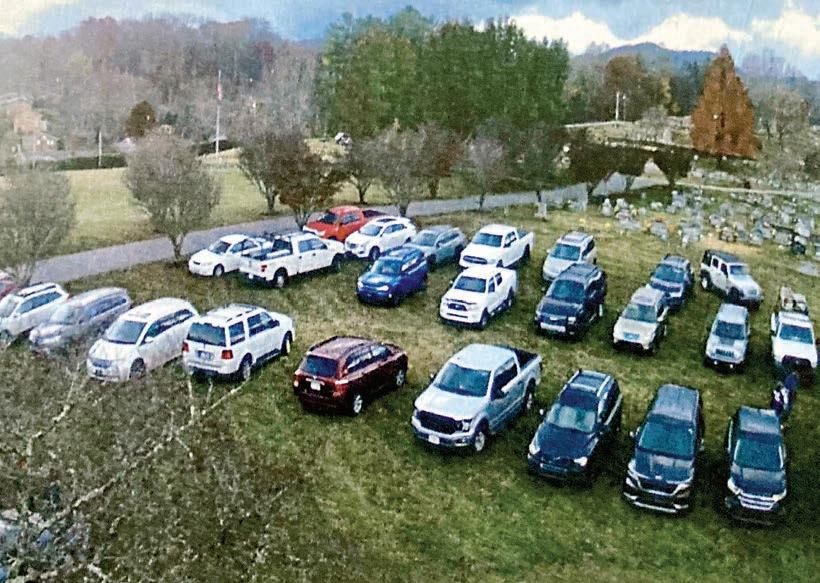
An email sent to the facility by The

“I think we have a couple of options,” Cook said. “One would be dealing with public works, so that would be maybe roping it off. Then, we’d have to go talk with the police and we would have to pay somebody off duty, probably need two officers in there. I don’t think anybody wants that.”
Alderman Jon Feichter was one of the most vocal board members during the 2018 dust-up over cemetery conditions and policies. When reached for comment, he said he wasn’t aware of the parking issue, but he did say it was concerning.
“Before I could make any kind of informed comment it would be helpful to know more, but just at first blush, I don’t think parking on the grass at the cemetery is a good idea or acceptable,” he told SMN on Jan. 28.
Cook says she’d encourage people to reach out to members of the cemetery committee with their thoughts on the issue.
“At this time, we’re just looking for input on how to solve this issue in the best interest of the community,” she said.
Comments can be directed to Grasty, the town staff member assigned to the board. Email Grasty at jgrasty@waynesvillenc.gov or call 828.456.3706.
“We’re just looking for input on how to solve this issue in the best interest of the community.”
— Lisa Kay CookDozens of cars sit on the grass at Green Hill Cemetery last Halloween. Town of Waynesville photo













Mountain BizWorks is now accepting applications for its first Latino Catalyst Cohort, which will be facilitated entirely in Spanish. The business development program, based on the successful Multicultural Catalyst Cohort for entrepreneurs of color, focuses on developing practical business and leadership skills. Applications will be accepted through March 20, with the first session scheduled for April 26.
About the program expansion, Jeremiah Robinson, Catalyst Entrepreneur in Residence, shared: “Language shouldn’t be a barrier to accessing financial resources and opportunities. We are proud to offer our popular Catalyst Cohort in Spanish, extending the reach of this valuable program to our Spanish-speaking clients and communities so that they can fully benefit from everything we have to offer. Providing equal access to financial resources and opportunities is a top priority for us, and we are committed to serving all members of our community.”
Members of the Latino Catalyst Cohort will join a group of passionate entrepreneurs in a peer-support setting, facilitated by a growth mentor. The 10-month program will help members navigate the challenges and opportunities of entrepreneurship. In addition to the cohort sessions, participants will be able to take advantage of one-on-one training sessions with program facilitators and Mountain BizWorks trainers. Each participant will also receive $2,000 to request technical assistance in the different areas that their business needs to achieve their growth goals.
“This is an incredible opportunity to meet your business growth goals with expert and peer encouragement,” shared Jenny Forero, Latino Entrepreneurship Program Manager. “In the cohort, you will learn the skills needed to thrive as a business. I encourage business owners to commit to themselves this year. We can reach higher together.”
The program is designed for existing Latino small business owners with potential for growth. In this first cohort, only ten Latino business owners (based in WNC) will be selected through a competitive application process. Thanks to the generous support of Buncombe County and other organizations, there is no cost to those selected to participate.


For more information or to apply to be a part of the inaugural Latino Catalyst Cohort, visit mountainbizworks.org/grupocatalizador. Email jenny@mountainbizworks.org or jeremiah@mountainbizworks.org with any questions regarding the application.

In January, Principal Chief Richard Sneed made the unusual move of nominating a man who is attempting to unseat him in the September 2023 tribal election for a position on one of the tribe’s most powerful commissions — but Robert Osley Saunooke has turned down the appointment.
“While I was appreciative of the appointment, and I believe that my 30 years of experience in tribal government, business and gaming would have been an asset to the Eastern Cherokee’s gaming business, I felt that it would detract from my campaign for chief,” Saunooke said.
Sneed had nominated Saunooke to fill a seat on the three-member Tribal Gaming Commission, which is responsible for ensuring fairness and integrity at tribal gaming facilities and protecting tribal assets and public health and safety at those facilities.
Saunooke is an attorney who has practiced law since 1992 and is admitted to practice in many courts and jurisdictions, ranging from the U.S. Supreme Court to four different Circuit Courts of Appeals to the Seminole Tribal Court to the Florida Bar, among others. He has worked with tribal governments across the country on a variety of efforts, including negotiating and financing business
development in Indian Country.
“Rob’s initial eagerness to pursue the appointment and his background in gaming law identified him as a strong candidate for the appointment,” Sneed said, “however I understand his decision to withdraw his name for consideration to the TGC board and instead focus his efforts on his campaign for principal chief.”
Saunooke would have taken the seat held by Albert Martin, whose term expired in December. Sneed does not yet have an alternative candidate to nominate, his office said.
Though election filing doesn’t start until March, three men have already announced their intent to run for principal chief. Sneed, who was elected as vice chief in 2015 and sworn in as principal chief in 2017 following the impeachment and removal of former Principal Chief Patrick Lambert, will seek his second elected term. Saunooke and Wolfetown Rep. Bo Crowe, who just this week announced his resignation from Tribal Council, have also announced their candidacy. However, Crowe’s ability to hold office could be compromised by the outcome of a criminal case in which he faces two felony charges and one misdemeanor. Tribal law prevents people convicted of a felony from holding office unless they successfully petition the court to reinstate that right after

completing the sentence.
When Sneed announced Saunooke’s nomination on Facebook the second week of January, he acknowledged the upcoming election but said Saunooke’s acceptance of the position would have “no bearing” on his candidacy.
“I know our nation is stronger when we set aside personal differences and seek to do what is best for our nation,” Sneed wrote in the post. “I also believe that our citizens benefit from honest and fair campaigns that offer them choices between competing visions for
 BY HOLLY KAYS STAFF W RITER
BY HOLLY KAYS STAFF W RITER
Wolfetown Rep. Bo Crowe has announced his resignation from the Tribal Council seat he’s held since 2013. The announcement follows a Jan. 6 incident that resulted in Crowe facing three criminal charges, two of which are felonies.
At the beginning of Budget Council Tuesday, Jan. 31, Chairman Richard French read a letter from Crowe explaining his decision.
“Working for and serving our enrolled members is something that I have put my whole heart into and at this time, with everything going on, I do not feel like my whole heart and mind is here and I cannot be the Council Representative that they know and deserve,” Crowe wrote. “I will be stepping away to work on healing my family and taking care of myself.”
The announcement marks a reversal from Crowe’s initial public comments on the
matter, which he gave during the previous Budget Council meeting Tuesday, Jan. 10. At that time, he said he would not be resigning his seat.
“As an elected official and a servant of the Wolfetown and Big Y community, I must place my faith in our tribal process,” Crowe said Jan. 10. “This includes having faith as a sovereign nation in the wisdom and mercy of the Cherokee Tribal Court. I stand accountable for my actions, and I do so without regret.”
Court documents accuse Crowe of assault against Knoxville resident Jason Matthew Burleson, stating that Crowe struck Burleson about the body, placed his arm around his neck and squeezed, rendering him unconscious. The incident occurred the evening of Jan. 6 at Harrah’s Cherokee Casino — in the parking area, Crowe said in his public comments.
Crowe was arrested Jan. 7 and spent the weekend in jail until his arraignment hearing Monday, Jan. 9. He is charged with assault inflicting serious bodily injury, assault by strangulation and aggravated reckless endangerment. Together, the charges carry a maximum combined prison sentence of seven years, with fines and tem-
porary banishment also on the table.
Despite the allegations against Crowe, many in the Cherokee community have voiced support for him, believing that he acted to protect his teenage daughter and niece. The niece, Livia Crowe, addressed Council Jan. 10. While that part of the session was not broadcast, Crowe’s adult daughter Dre Crowe later shared a written version of Livia Crowe’s comments on Facebook.
According to Livia Crowe, Bo Crowe is a “hero” who came to her rescue immediately, while authorities didn’t respond until hours later. Without Bo Crowe’s actions, Livia Crowe said, she fears she and her cousin might have become another statistic in the epidemic of violence against Native women.
“On the night of January sixth my cousin and I were followed, harassed, insulted and threatened,” she said. “We were called ugly names, swerved off the road, and had drinks thrown on our moving vehicle. We instantly called our parents during the event, and my uncle Bo came to our rescue as fast as he could.”
While many in the community stand by Bo Crowe, that support is not universal. A resolution included on the agenda for the
the future.”
Saunooke decided that his efforts would be better spent offering a vision for the future as chief of the tribe rather than as a member of the TGC.
“I think that over the past 35 years I have developed relationships and connections that can help my tribe better if I am successful in my bid for chief,” he said. “While gaming remains an important part of our tribal future, we continue to struggle with important issues that I would not be able to address if I was a gaming commissioner.”
Feb. 2 Tribal Council session sought to initiate impeachment proceedings against him as a result of the charges. The resolution was submitted by Chelsea Taylor and Mary Ferguson.
Following his arrest, Crowe was released from jail on a $5,000 unsecured bond. His next court date is scheduled for April 5.
In October, Crowe announced his intention to run for principal chief of the tribe. The charges could place that aspiration in jeopardy because tribal law prevents anybody who has been convicted of a felony from holding office, unless they successfully petition the court to reinstate that right after completion of the sentence. Crowe did not return a text message asking the status of his plans to continue the campaign in light of his recent resignation.
Crowe’s resignation leaves Andrew W. Oocumma as Wolfetown’s sole representative. Oocumma took office in January following a special election to fill the seat held by Bill Taylor, who resigned in October following criminal charges in connection to a domestic violence incident, and has since pleaded guilty. The tribe’s Charter and Governing Document states that the township should elect a new representative when a vacancy occurs midterm. All 12 Tribal Council seats are up for election in the Sept. 7 General Election.





 BY C ORY VAILLANCOURT P OLITICS E DITOR
BY C ORY VAILLANCOURT P OLITICS E DITOR




The town that refuses to stay down made another big move toward getting back on its feet last week, selecting architects who will design replacements for municipal buildings that were damaged or destroyed during flooding in August 2021.
“The selection of these groups was spearheaded by our administrative staff,” said Zeb Smathers, Canton’s mayor. “They really kicked the tires on this one. It’s not just rehabbing old buildings. They’re repairing our soul. They’re not just getting it back to where it was, but making it better and protecting it.”
During heavy rains associated with the remnants of Tropical Storm Fred, downtown Canton took on several feet of water. Town hall, which also housed Canton’s police headquarters, was flooded out and remains unusable. The town’s fire department, located behind town hall, fared slightly better but remains in the flood plain.
The Colonial Theatre, across the street from town hall, was gutted by floodwaters from the Pigeon River for the second time in less than two decades, and the armory on Penland Street suffered extensive damage.
Several months ago, the Town of Canton put out a request for qualifications (RFQ) from architectural firms interested in competing for the contract to design Canton’s
new town hall, police department and fire department. At the same time, the town also issued an RFQ for the renovation of the historic Colonial Theatre as well as the armory.
The five buildings were separated into two groups, with the town hall, police department and fire department comprising one project, and the theatre and armory comprising the other.
The town received eight statements of qualifications (SOQs) for the town hall-police department-fire department project. Administrators from the town, as well as police and fire staff, ranked and scored each of the eight SOQs based on core requirements specified in the RFQ.
Those requirements included the demonstrated understanding of the town’s needs, experience with similar projects in the past 10 years and resumes of the staff assigned to the project as well as the ability to perform quality work, control costs and stay on schedule.
Charlotte-based Creech and Associates scored 374 points out of a possible 500, and was selected to perform the work for the first tranche of projects. Creech has designed town halls in Davidson and Pineville as well as the Union County Sheriff’s Office and beat out second-place contender Stewart Cooper Newell by just one point.
Canton’s new town hall won’t be built from the ground up; in August 2022, officials

Canton’s new town hall will require renovations to serve the administrators who will work there.
from the town and from Champion Credit Union announced a deal whereby Canton would take over a former bank on Academy Street for town hall and an office building on Main Street for the police department.

Those structures will require significant rehabilitation to meet the town’s needs, but the deal is viewed as a win-win that will also allow Champion to consolidate its operations in a new space somewhere in Haywood County.

The new fire department facility will be built from the ground up, however a site has not yet been announced.
The current town hall and fire department buildings on Park Street will eventually be demolished. Planning hasn’t yet begun on what will happen to the town-owned parcel, but Smathers said that it won’t just be about the parcel, but instead will involve a “reworking” of the entire area.
The town will soon seek grants to pay for planning.

“It’s not as simple as just tearing the buildings down and putting in grass,” Smathers said. “It will probably be the largest, most dynamic change in Canton history.”
Smathers also said there could be buyouts of other privately owned buildings downtown.
The other project, for the town-owned theatre and armory, will be mostly rehab but
will incorporate some flood resiliency measures, as the historic structures can’t be moved or elevated.
Canton received three SOQs for the theatre-armory project.
Greenville, South Carolina-based Craig Gaulden Davis Inc. tallied 370 points, based on scoring from town administrators as well as recreation staff in the same categories as the town hall-police-fire project.

Craig Gaulden Davis has a substantial 65year history of “completing culturally significant projects that have strong economic impacts on the communities they serve,” according to their SOQ.
Projects listed by the firm include several historic theatres in South Carolina and Georgia, the Harrill and Albright-Benton residence halls at Western Carolina University, Haywood County Schools and the Buncombe and Haywood County courthouses. Shelbybased Talley & Smith placed second in the scoring, with 363 points.
According to a schedule provided by Craig Gaulden Davis, the design and permitting phases of the theatre and armory projects could take up to 40 weeks before construction begins. Once it starts, it will take 10-16 months for work on the theatre, and 10-14 months for the armory.
“This is just one step in the process,” Smathers said. “But it is a major one.”
Chief David Adams and the Waynesville Police Department will begin implementing a motorcycle program and hope to have bikes on the streets this summer, thanks to a steal of a deal from an old friend in the city of Hendersonville.
“David called me a couple weeks or months ago,” said Blair Myhand, chief of the Hendersonville Police Department. “I would say he’s doing a really smart thing for the town of Waynesville by finding bikes from another agency that are used, that he can get into at an extremely low cost.”
In addition to his work in Franklin, Adams served in Hendersonville before becoming Waynesville’s chief in January, 2020.

On Jan. 24, Waynesville aldermen unanimously approved the purchase of two Harley Davidson FLHTP models from Hendersonville for $2,000 apiece. One dates from 2012, and the other from 2013. Both have been expertly maintained. Motorcycle sales website cycletrader.com shows newer models going for $25,000 or more.
Motorcycles have been utilized by American police departments for more than 110 years. The first motor patrol division is credited to Gus Vollmer’s Berkeley, California Police Department in 1911. Vollmer is often called the “father” of modern policing; however, cities like Detroit and Portland may have used motorcycles as early as 1908.
Usually, police bikes are little different from standard bikes, except for some minor modifications like run-flat tires, lower gear ratios and some wiring modifications. Some may even accommodate sidecars. Historically, they’ve been manufactured by well-known brands like Buell, BMW, Kawasaki, Triumph and Yamaha.
“It’s been in the back of my mind for several years,” Adams said. “Over the last year, one of our officers at Waynesville started looking into it and I started asking around and just casually mentioned it to Chief Myhand. He said, ‘Hey, we’ve got a couple we’re not using. We can come up with a price to help y’all get started.’ That’s kind of how it evolved.”
Myhand told The Smoky Mountain News that his department has five bikes, and that he’s familiar with motorcycle operations from his time with the Washington, D.C. Metropolitan Police Department, where they’re used mostly for ceremonial functions.
In his Hendersonville department, they’re used in much the same way.




“Our main focus will be public relations, sort of ceremonial type stuff,” Adams said. “In the future as we develop the program, it could lead to traffic control but we have to get people trained and they will start applying for grants next year through the Governor’s Highway Safety ‘BikeSafe’ program.”
Sometimes, motorcycles can go places and do things cars can’t.
“You can get to more congested areas or tight streets, and it’s a little easier to sometimes run radar,” he said. “I don’t think it will ever be a primary focus, but it could evolve. Obviously, we would not be involved in any type of pursuits or anything like that.”
The operating cost of the bikes is minimal, especially given that they won’t be used as frequently as the town’s other police vehicles. They’ll probably spend most of their time in a garage, and won’t be taken home.
Officers need a motorcycle endorsement on their driver’s license, and then additional law enforcement-specific training totaling 60-80 hours, according to Adams. Fortunately, in the motorcycle-crazy Smokies, there are already a few officers with such endorsements and they’re ready to go.
Myhand said that there aren’t a lot of downsides to operating the bikes, and that they’re no more or less dangerous than any other police vehicle — especially for people who are passionate about riding.
“I’ve known officers who have been injured or killed, but we have the same risk in vehicles,” he said. “In most things, if you are an officer I would assign you to a particular function, but motor officer is not something that I assign people to. You have to volunteer to be a motor officer. I would never tell someone they have to do it.”
The bikes will also serve another purpose that may not be immediately obvious to the general public.
“I think most officers, in my experience, want the opportunities to do other things in the profession,” Myhand said. “Having the ability to be a motor officer, even if it’s five times a year during a special event, gives them something else to work on, to try to master, to practice. It’s definitely a recruiting tool.”
Adams said that he thinks the addition of motorcycles to Waynesville’s fleet will offer his officers the same opportunities and will definitely help with officer recruiting and retention.
“I agree wholeheartedly on that,” he said. “We’re always looking for more things to offer our current officers and to recruits. We got the drones last year. We have a top notch K9 program. We have an honor guard. We have a drug unit. We have criminal investigations, and the SWAT team. We offer a lot, and this is just another tool that attracts people.”
Aside from chocolates and flowers, what could be a more perfect gift than sharing an uplifting and educational experience with someone you care about?
Our Thai partner workshop, hosted by Thai massage specialist Quentin Shaw, is the perfect way to learn more about the body and what stretches both you and your partner can do to help each other ease pain, stress, and tension.

Open to all levels of expertise. Thai mats are provided, and loose, comfortable clothing is recommended. SPACE



After much discussion and community input, the Jackson County School Board has decided to keep its middle school sports situation as it is, with both schoolbased and district sports teams.
“I would like to say how proud I am of the students who had the courage to get up and voice their opinion,” said school board member Wes Jamison. “I think it is very important for them to have that opportunity and see that everyone doesn’t always agree, but things can still be worked out. I am happy for the students to be able to continue participating in both district and elementary school sports.”
Jackson County is unique among other school districts in the region in that it does not have a middle school; rather, it has several K-8 schools that feed into its high school.
Approximately 15 years ago Jackson County Schools created a district team for football. Because of the relatively small student population at each K-8 school, some did not have the
individual ability to field a football team. However, with a district team, boys from any school could try out for the county-wide team.
Now, JCPS has district teams for football, cross county, boys and girls soccer, volleyball, wrestling, basketball, cheer, baseball, softball, track and golf. Tryouts for these teams occur and are followed by school-based team tryouts if the school has teams. The only sports that currently have district teams but no school-based teams are football, wrestling, track and cross country. This is because after fielding district teams there are not enough athletes to also create a school-based team.
Since last summer, discussions have been taking place among administration about some of the difficulties created by the existence of both school-based teams and district teams for middle school sports. The school system has a difficult time hiring and retaining coaches, having enough locations for practices and games, finding enough bus drivers, administration coverage, SRO coverage and support staff to run clocks and chains during games.
Additionally, according to Superintendent Dana Ayers, there is a divisive climate between the two programs as they attempt to run concurrently and want to have the best players on each of their teams.
District Athletic Director Pam Shuler broached the idea of only competing on the conference level in the sports that don’t have enough athletes for school-based teams — football, wrestling, cross country and track and field. This would have allowed the school system to have only district teams in those
Jackson resident and former coach Dave Waldrop. “I would like to see the school system keep as many opportunities as possible.”
Others touted the importance of students having extracurriculars, especially in such a rural county where other opportunities may be slim. Sports, the speakers said, are an important outlet for students that are inundated with social media during free-time and screens during academic instruction time. However, few of the speakers addressed the problem at hand, that of the unsustainable strain on school resources, both staff and facilities.
Board members appeared swayed by appeals from the gathering of students, parents and coaches, eventually voting to keep both school-based sports and district sports as they currently function, but with some added conditions in place.
Board members did plead with the crowd gathered to do their part, whether that be coaching a team, volunteering to run games, getting certified to be an official or driving buses. The message was clear, if the community wanted to keep both school-based and district sports, it would take community support.
The first motion made on the matter during the Jan. 24 meeting was to “continue with district middle school athletics as they currently operate.” Four board members voted in favor with only Lynn Dillard opposed.
The second motion made was to “retain school-based athletic teams with the condition that a minimum of two schools must field a team in any given sport with appropriate personnel. And, if there is only one team in any given sport, there will not be a season and no additional try-outs for district teams will occur. Furthermore, district teams will be prioritized over school teams in regards to facilities.” Three board members voted in favor of this motion with Wes Jamison and Lynn Dillard opposed.
sports and only school-based teams in others. However, the athletic directors that make up the Blue Ridge Conference voted unanimously to deny the request, meaning Jackson County Schools could not remain in the conference if it was only participating in those four sports.
After brief, inaudible discussion between board members, there was a third motion to retain school-based athletic teams with no conditions. Two members of the board were in favor, while Abigail Clayton, Elizabeth Cooper and Wes Jamison were opposed.
Monday 4 p.m.-8 p.m.
Friday 11 a.m.-5 p.m.
Saturday 11 a.m.-8 p.m.
Sunday 11 a.m.-5 p.m.

perfect for all walks of life, from families to golf groups to ladies who lunch. We pride ourselves on using fresh ingredients from our gardens and supporting local farmers. The details are priority.

At its Jan. 24 meeting, the Jackson County Board of Education took up the issue. Seventeen members of the public spoke during public comment, and while some argued for keeping one of the other, the majority made impassioned pleas to keep both schoolbased and district sports. Students, coaches and parents all took to the podium to share their opinion among shouts and cheers from the excited crowd.
“I would hate to see the Jackson County School system turn its back on any young person who needs a responsible adult to relate to in the community or in the school,” said



“I voted to continue district sports and end [school-based] sports because I’m trying to have a long-term vision of the bigger picture and provide more opportunities for students,” said Jamison. “This would also include more academic opportunities, extracurricular opportunities and a higher quality of sports opportunities. I voted against elementary school sports in an attempt to bring about change. It is time for Jackson County Public Schools to have a middle school. We are going to have to bring and accept change to move forward.”
This idea of a middle school in Jackson County has come up regularly throughout the discussion over sports, and is one that Superintendent Ayers is an advocate for.

Since last summer, discussions have been taking place among administration about some of the difficulties created by the existence of both school-based teams and district teams for middle school sports.
 BY HANNAH MCLEOD STAFF W RITER
BY HANNAH MCLEOD STAFF W RITER
News of Sylva Mayor Lynda Sossamon’s resignation last week left the town board with decisions to make about who would fill the void. In addition to appointing one of their own to the seat of mayor, the board will need to appoint a new member to the board to fill all six seats.
“The board needs to appoint someone that is a town resident, most commonly you would appoint someone from the board,” said Town Manager Paige Dowling in regard to the vacancy for mayor.
At the Jan. 26 meeting of the Sylva Board of Commissioners, the board unanimously voted to appoint Commissioner David Nestler as the new mayor of Sylva. Nestler had been serving as mayor pro tem. He previously served as the president of the Main Street Sylva Association, was first elected to the board in 2015 and won reelection in 2019 with the most votes of any candidate in the field.
“I would be glad to serve,” said Nestler.
Nestler will be sworn in at the next regular meeting of the Sylva town board, 5:30 p.m. Feb. 9, and will hold the office until November elections. At that point there will be an election for mayor of Sylva. The candidate who wins the election will serve a two-year term in order to get the board back on track for four-year staggered terms.
When Nestler is sworn in as mayor at the next meeting, the mayor pro tem seat will officially become vacant. At that point, the board will vote to appoint the new mayor pro tem, who will then be sworn in at the following board of commissioners meeting. During its Jan. 26 meeting, com-
Haywood County real estate agent



Lynda Bennett, a 2020 candidate for the Republican nomination in North Carolina’s 11th Congressional District, will plead guilty to violating the Federal Campaign Act of 1971, according to documents filed in federal court on Jan. 27.

According to the filing, on or about Dec. 31, 2019, Bennett “on behalf of her campaign did knowingly and willfully accept a contribution made by one person, Individual A, which aggregated $25,000 in the calendar year 2019, in the name of another person.”
The complaint further identifies “Individual A” as a relative of Bennett.
Bennett, who was backed by President Donald Trump, retiring incumbent Congressman Mark Meadows and Ohio Rep. Jim Jordan, among others, won the first round of Republican Primary Election voting but lost in the runoff election to future Congressman Madison Cawthorn. That year, the maximum donation
missioners agreed that they wanted Commissioner Mary Gelbaugh to serve as mayor pro tem. Gelbaugh first won election to the board in 2013.
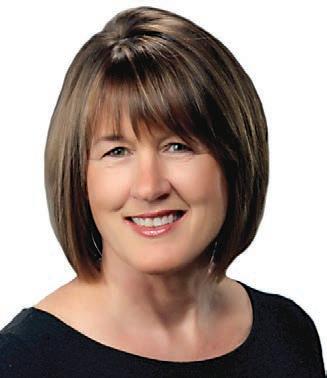
“I am willing to serve,” said Gelbaugh.
Anyone who would like to apply for the vacant commissioner seat should contact Town Clerk Amanda Murjada at town hall to get both information on the process and the application.
“This is so that she can explain the process for filling the one-year term,” said Dowling. “Because they will be essentially filling David’s seat for one year until the November election. We’ll also encourage them to attend upcoming meetings.”
Interested parties will fill out the application, a supplemental questionnaire and submit a resume. All applications are due Feb. 15. The board will receive applications in open session at its Feb. 23 meeting. The board, excluding the new mayor, will vote to fill the vacancy during its March 9 meeting.
The selected candidate will be sworn in during the March 23 meeting of the Sylva Board of Commissioners, allowing them to be seated on the board in time for the next budget discussions which will also take place on March 23. The new commissioner will serve until the November elections.
allowed from an individual was $2,800 per candidate, per election, meaning Bennett could have legally accepted up to $5,600 for her Primary Election and for the runoff.
Sentencing guidelines for violations of 52 USC 30122 list maximum penalties of five years imprisonment and/or a fine of up to $50,000.
This story was first reported in Politico. — Cory Vaillancourt, politics editor


The Town of Sylva began its budget process last week with the first workshop of the year. Staff and elected officials discussed the possibility of a coming recession, ongoing projects in the town, as well as budget needs for the coming year.
The town ended 2022 with a property tax collection rate of 97.96%. Sylva’s current property tax rate is $0.44 per $100. The current budget for the fiscal year 2022-23 totaled $5.8 million but was reduced by over $100,000 after the first of the fiscal year upon the county’s approval of eight paid fire department employees instead of 11.
“Tax collections are directly affected by the economy that we stand in at the time,” said Town Clerk and Tax Collector Amanda Murjada. “As we prepare for what analysts have said with the recession coming up, a decrease in collections is quite possible. It did happen with the recession in 2008, 2009, 2010. It’s not usually recognizable at the very beginning, it takes a tax cycle or two for it to be realized. So most likely if we see a recession that comes later in 2023, we’re looking at probably the end of next year or even the following fiscal year when our revenue would go down.”
With a possible recession, in addition to the coming work on N.C.107, Murjada says the town is looking at a major decrease in its tax value over the next two years. While the town does need to plan for this decrease, it is impossible for town staff to know how much values will change in the coming years.
“When we bill in September, we’re going to be down right at $2.9 million in value from the eight properties they’ve taken so far,” said Murjada. “That’s right at $15,000 [in tax revenue].”
Expected start date for the N.C.107 project is July 2024.
Up to a 2.5% increase will be recommended in the upcoming budget to keep up with salary study recommendations and cost of living adjustments. Consumer price index proposed for the year is 6.4% but will be based on what the town can afford.
“I think that’s another indicator of where we’re headed with the recession,” said Dowling. “You can’t grow 9% and 6.4% year after year, something has to reset.”
Primary sources for Sylva’s general fund include property taxes, ABC revenue, local option sales and use tax and utilities franchise tax.
“Shrinking these revenue sources shrinks the budget we can spend,” said Dowling. Upcoming budget projects include N.C.107 sidewalks, for which the town has budgeted $200,000 over the past four years, and Skyland Drive sidewalk, for which the total town portion is $381,200. The town currently has a budget ordinance of $2.3 million for Allen Street Slope repair and has $3 million from the state budget for Bryson Park playground equipment and capital improvements. For downtown restrooms the town has $390,000 from state capital infrastructure grants. The town has budgeted $390,000 for the Bridge Park project; estimated total cost is almost $700,000 and the town is planning to apply for the JCTDA Tourism Capital Project Fund grant for the remainder of the cost.
In the coming year, public works will need $41,525 for a light truck replacement, which includes 10% for cost inflation. Painting town hall and the public works facility, cleaning and fixing cracks is estimated to cost $23,500. The department is also requesting $11,000
On Jan. 26, one day before the Memphis, Tennessee Police Department released video footage of the beating that led to the death of 29-year-old Tyre Nichols, the Town of Waynesville Police Department issued a statement calling the conduct of the five MPD officers involved “indefensible.”
As of press time, the statement is believed to be the only
for a 52-inch mower to keep up with the replacement schedule, and $3,250 to upgrade the diagnostic computers for fleet maintenance to be able to scan newer vehicles.
The police department will need a new vehicle this year that will cost an estimated $30,000, plus $15,000 for outfitting. Additionally, the police department recently decided to remove the small gym it has inside its building, in part because local gyms offer very low rates for police officers. This room now needs to be installed with shelving and workspace to keep up with accumulating files. Rehab for the whole room is estimated at $20,000 and would be a space to keep files organized and secure. The department is currently working through an audit to ensure compliance with North Carolina General Statute when it comes to file storage and retention.
“Can we do without it? We probably could, but we’re going to have to do something with it sometime, and I don’t know that it’s going to get any cheaper,” said Chief of Police Chris Hatton.
Another possibility Hatton touched on is an application that serves as a mental health tool for police officers and their families. To
set the system up it would cost the town just over $6,000 and to maintain it thereafter it would cost the town about $3,000 per year.
According to Dowling, town administration would like to make the Main Street Sylva Association director a full-time position, something she said the town would likely need a tax increase to accommodate. The increased time from the position would focus on business and economic development, especially in the face of the changing business landscape around the N.C.107 project.

“It’s incredible what you’ve done as a parttime employee, and your engagement of the downtown business community is incredible,” said Commissioner David Nestler. “Expanding that to a full town economic development director, or however you guys decide you want to define that, with the 107 changes coming up, I think it would be critical to have someone in that role full time.”
The fire department will need $70,000 for a first responder vehicle, and the building needs repainting on the inside which will cost around $20,000. This year or next year, the department will have to replace one of its pumpers at about $450,000, and will be able to use some of its fund balance for the cost.
Sylva Commissioners also discussed their budget priorities for the coming fiscal year.
Mary Gelbaugh is interested in the metal building at Mark Watson Park being relocated and a skate park going in that facility, a project she wants to pursue with the county commission. Ben Guiney would like to see accommodations made for increased pedestrian safety. Natalie Newman expressed interest in better communication with the public, whether that be through a quarterly mailer or other form of communication. Nestler noted the vital need of keeping up with inflation and cost of living for employment compensation. Greg McPherson would like to see entry signs on the way into Sylva. Commissioners also discussed conducting a new pedestrian safety plan, considering the changes and updates coming to town properties in the coming years, as well as a recurring payment into a Sylva art fund.
Budget discussions will be ongoing in the coming months. Department heads will submit their official requests for funding to the town by March 3, the next budget work session will take place March 23 and staff will submit a balanced draft budget to the town board by April 19. A public hearing on the budget will take place May 25, and the board is scheduled to approve the document on June 8.
one issued by any police department west of Asheville. Here’s the statement in its entirety:
The events in Memphis, Tennessee earlier this month are heartbreaking. As we learn more about the death of Tyre Nichols and the actions of the officers involved, it is clear that the oath we take as police officers has been betrayed. The actions of those officers are indefensible and the inaction of others who failed to intervene is just as appalling. We acknowledge how this is affecting the City of Memphis, as well as communities throughout our country and here locally. We share in your anger and we pray for Tyre’s family,
friends and community.
The men and women of the Waynesville Police Department remain committed to serving you and our community with dignity, integrity, compassion and respect for all. It’s our responsibility to instill these values within our agency as we commit ourselves to the preservation of life. It’s these values that should guide our steps and direct our actions in all that we do every day.
Here in Waynesville, we are blessed with strong relationships and priceless partnerships with our community, our businesses, and those who visit this wonderful town. We do not take this for granted as we know how blessed we are. Thank you for trusting us as we serve you!
It’s been another hard news week. It seems like that’s becoming the norm in modern American society. No matter which news outlet you favor, there are a slew of heartbreaking or alarming stories. Even if you simply pop on your phone to get directions or check your bank account, it’s hard to avoid the headlines.
I read earlier this week about a young mother who was suffering from postpartum psychosis. When her husband left the house to pick up takeout, she strangled her three young children then attempted to kill herself by jumping out a window. She was unsuccessful and remains alive. If she heals from her postpartum mental illness, she will have to live with the horrible guilt and anguish over her children’s deaths while she sits behind prison bars. It is beyond my imagination to understand what she and her family are experiencing.
Then there’s the Tyre Nichols case, and not only the brutality of the case itself and his family’s grief, but also the trauma experienced by many people who’ve watched the video of this young man being brutally murdered.
Additionally, the disturbing Alex Murdough trial started this week. There was a suicide bombing in Pakistan that killed 59 people and of course the ongoing conflict in Ukraine. It’s easy to get pulled into the quicksand of negativity and despair when the news flashes with headlines such as these.
As I was walking my dog last night, I thought hard about his canine existence and the way he and all dogs approach life. With that in mind, I’m not going to continue dwelling on the sensitive and upsetting news stories of the week. Instead, I am going to offer you some lessons I’ve learned from my Australian shepherd, Ringo.
Get outside: If you have a dog, you know how much being outside means to them. It’s the highlight of their day. If I even
To the Editor:
I’m writing a very heartfelt concern I have for the health and safety of all the people in our community. Many are influenced by the local news media from the reports made on important topics. Specifically, I’m referencing the piece in Issue 35, Jan. 25, 2023, Vol. 24.
A full-page feature with misleading title reported on a recent commissioners meeting that involved the very sensitive and apparently hot topic of vaccines. I have a few questions that I hope can be addressed.
(1) What was the point of this article? Was it to report to the uninformed public of the commissioners meeting regarding the grant being offered to the N.C. Division of Public Health?
(2) Was it intended to discredit citizens with valid questions and to keep the many people out here in the community polarized and therefore confused as ever about this
walk near my dog’s leash, he starts jumping up and down and running in circles. As humans we’re meant to be outside. Evolutionarily, it’s only been in recent history that our species has decided to stay indoors most of the time. I learned that a mere 10 to 30 minutes in the sunshine per day will keep our vitamin D stabilized. Surely, we can all find that amount of time to get some sunshine each day, and while we’re out there, let’s embrace the stunning allure of Mother Nature.
Be curious: Each day is an unopened box with new knowledge at every turn. Yet, we’re bad to dwell on the negative or spend precious mental energy worrying and overthinking. Dogs are curious about everything. Sounds, birds, novel objects, even the trash. For us, there are books to be read, movies to watch and conversations to be had. Let’s try harder to stay curious.
Play hard: Through the years, I’ve become less playful. Not only are dogs great models when it comes to play, but so are kidsl. When dogs or kids are in the middle of a game or activity, they are hyper focused on what they’re doing. They aren’t concerned with what happened that morning or what may happen five days from now. I’ve been working hard to be more playful and less pensive. I think hard about everything, but it feels lovely to sometimes be light and easygoing.
Listen to your body: We’ll fill Ringo’s food bowl in the morning and it often sits uneaten until he finally decides to eat. This is contrary to many humans who eat based on the clock or our schedules as opposed to what our bodies are
telling us. Similarly, dogs sleep when they’re tired. People, especially Americans, are terrible at resting. We act like it’s a weakness, but in reality many healthy cultures honor sleep as a sacred daily ritual. Like our dogs, let’s only eat when hungry and let’s stop resisting rest.
Appreciate treats: I love giving Ringo treats because of the sheer excitement it elicits in him. He’ll do whatever it takes to earn it. If I say “shake,” he’ll shake. If I stay “stay,” he’ll stay. Occasionally we’ll max out his giddiness by giving him a piece of bacon or lunch meat. In life, there are treats all around. My kids’ laughter, a delicious cup of coffee, a beautiful day, a good book, a lazy Sunday, majestic mountains. Next time I take life for granted, I’m going to work hard to see all of these things as treats and get as ecstatic as Ringo does about his morsel of bacon.
Love your people fiercely: Ringo is barely over 2 years old, so he can be a little overwhelming at times, but one thing’s for sure — he loves his people with all his Aussie might. They say that having a dog is more protective than having an alarm system, and I believe it. If a person or car gets within minimal proximity of our house, Ringo goes ballistic. Granted, it can be extremely loud when he gets in guard dog mode, but at the same time, I feel very safe. He also loves to snuggle and play with his family. Like dogs, we must love our people hard and let them know how much they mean to us.
One of my life affirmations is “What we appreciate, we create more of.” Dogs naturally appreciate the good in life. When external situations and circumstances begin to spiral, let’s look to our dogs for inspiration and remember that every day is a gift.
(Susanna Shetley is a writer, editor, digital media specialist and creator of the podcast “She Breathes.”)

issue?
(3) Was it to discourage vaccine hesitancy by citing a bunch of unrelated and alleged conspiracies and use this to insult the citizens who stepped forth on behalf of many people who do have questions?
In any case, I failed to see any point unless the objective was to demonstrate how politically motivated this important issue is which doesn’t solve anything.
Is it possible to objectively review all the data currently available, that we, the public, might benefit from? With a confirmation bias present as was demonstrated in the article, any real science with investigative research to support journalism cannot be achieved with any good outcome unless we can neutralize opinions and drop the bias.
The community could be better served if only they understood this very complex situation both locally and nationally, more fully. The cascade of evidence that is available is quite compelling and credible. This subject

I am happy to provide all the evidence nec-
essary with request that this too, be made public.
Diannah Beauregard Haywood Countydeserves an in-depth investigation — not the marginalization of anyone with valid health concerns.


North Carolina faces many challenges. You and I may disagree with how to rank those challenges, or what to do about them, but we share a belief that our state could be a better place than it is today.
This reformist impulse is proper and useful. But we shouldn’t let it make us unduly and unrealistically dour. Few states can match what North Carolina already has to offer — which is why few states match or exceed our growth rate.
The latest population data from the U.S. Census Bureau, for example, show that North Carolina’s population grew by some 133,000 last year, to 10.7 million residents. Only Texas (471,000) and Florida (417,000) increased more in population during the period. In terms of annual growth rate, North Carolina ranked ninth at 1.3%, with Florida (1.9%) topping the list.
America’s fastest-growing states are primarily in the Southeast and mountain west. That’s been true for some time now. Similarly, the places with the largest drops in population last year were also rather predictable. There were six-figure population declines in New York, California and Illinois. In percentage terms, the fastestdeclining states were New York, Illinois and Louisiana.
As for gross domestic product, North Carolina’s economy has since the beginning of 2020 posted a compound annual growth rate of 2.8%, adjusted for inflation. That’s significantly higher than the national (1.6%) and regional (2.1%) averages. Idaho (4.2%) ranked first in this category, followed by Tennessee (3.8%), Florida (3.6%), Utah (3.6%) and New Hampshire (2.9%). Our state ranked 8th.
Which states are slackers in economic growth? Well, Louisiana’s GDP actually shrank by an average annual rate of 3%. Other places with net negative growth since January 2020 included Alaska, Wyoming, North Dakota, Oklahoma, Hawaii, New Mexico, West Virginia and Maryland.
As should come as a surprise to no one, I believe that the past decade of free-market reforms and fiscally conservative policies made North Carolina a more attractive

place to live, work, invest and create new jobs. We went from having one of the worst-designed tax systems in the country to one of the best. Under laws already enacted by the General Assembly, our tax rate on personal income will decline to 3.99% by 2027. Our corporate tax will disappear entirely by 2029. I also credit infrastructure improvements and a series of regulatoryreform measures for improving North Carolina’s business climate.
A Canadian think tank, the Fraser Institute, provides a handy way to track these changes over time. In the most recent iteration of its Economic Freedom of North America index, North Carolina ranked 9th. That represents a marked improvement from its 2010 rank of 19th. By the way, what state currently ranks first in economic freedom by Fraser’s measure? Florida.
It is important to keep in mind, however, that government is not the primary driver of economic decisions — whether for good or for ill. All other things being equal, states with smaller, less-intrusive, and more-effective governments tend to grow faster than average. That’s the finding of most (though not all) academic studies published over the past several decades.
Where the rubber meets the road, however, all other things are never equal. States differ significantly in geography, natural resources, population density and economic structure. Many factors that determine growth over time can only be modestly influenced by public policy, if at all.
Look again at that list of states with shrinking economies. While some of them are “blue” states with relatively high tax and regulatory burdens, others such as Wyoming and North Dakota don’t fit that description. States overly reliant on industries such as oil drilling, mining and tourism have had a rough few years. Even Texas, a popular destination for migrating families and business alike, managed only to match the national average in GDP growth (1.6%).
North Carolina’s economic portfolio is more diverse — and becoming more so over time. Is there room for improvement? Sure. But we already have a lot to be thankful for.
(John Hood is a John Locke Foundation board member. His latest books, “Mountain Folk and Forest Folk,” combine epic fantasy with early American history. Check out folklorecycle.com.)
When Cherokee Nation member Brit Hensel got hired for the camera department of FX’s Reservation Dogs, her resume was short and her list of film industry connections even shorter. She’d never worked on a show of that caliber before, but its creator Sterlin Harjo took a chance on her.
And not just on her.
“I’d go to work and I’d see Native faces in every single department,” she said.
For many of them, this show was their big break, the leg up they needed to make it in the wider world of filmmaking.
“It’s such a celebration of Native people and indigenous joy,” she said of the experience. “It’s so cool to see our ways up on the screen like that and have it be something that’s actually real.”
Now anticipating its third season, Reservation Dogs follows four teenagers living on Muscogee Nation lands in Oklahoma. It’s about Native people, written and directed by Native people, and, to the extent possible, acted, filmed and produced by Native people.

That level of representation is rare in
Hollywood — unheard of, even. Only 0.3% of Directors Guild of America members are Native American, and Zippia estimates that 0.6% of actors are American Indian or Alaskan Native. An analysis by researcher Stephanie Fryberg of 2,300 on-screen television characters between 1987 and 2007, turned up only three Native characters. Meanwhile, the 2020 U.S. Census found that 1.3% of Americans are Native American or Alaskan Native.
Hensel — and a growing number of Native filmmakers — are seeking to amplify Native representation in the industry, both behind the camera and in front of it.
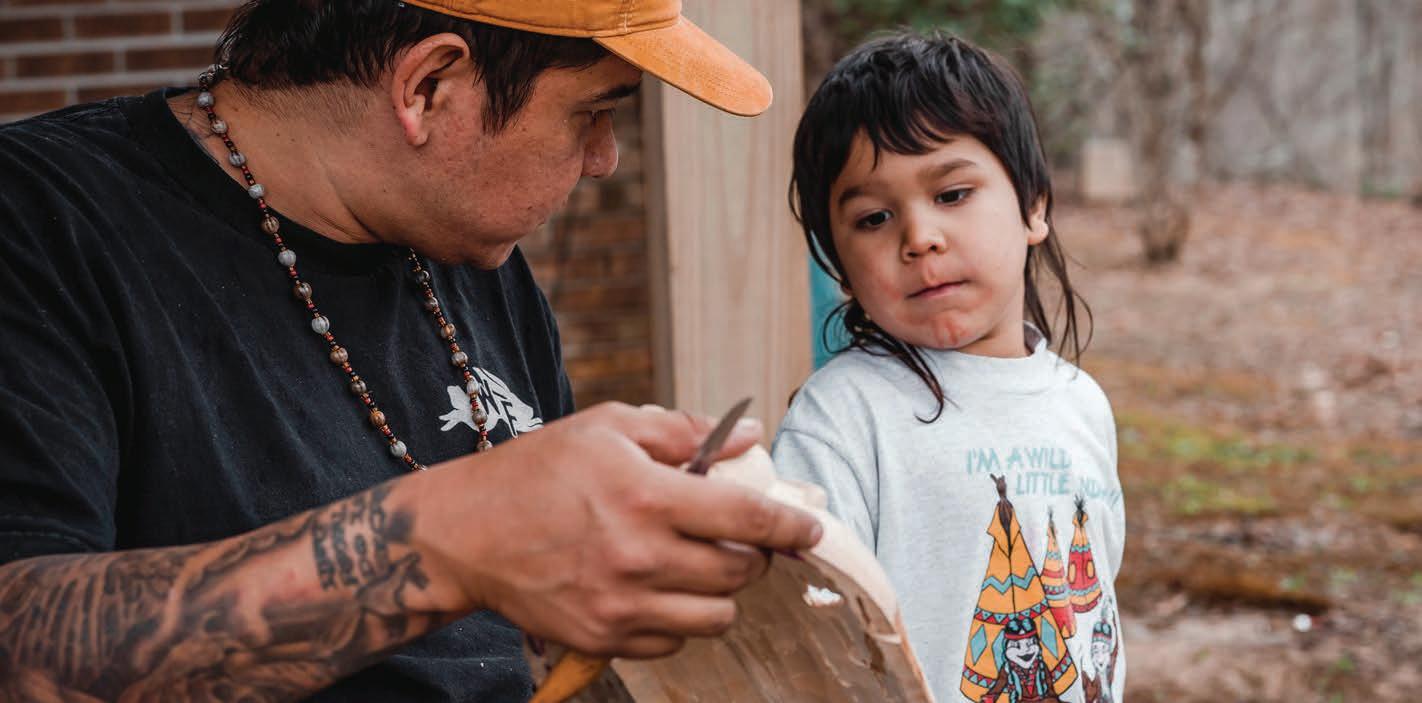
In the past, Native communities found themselves on film mostly as a result of outside documentarians coming in with cameras, recording what they could, and leaving to tell the story they wanted to tell. Now, a new generation of Native filmmakers is seeking to tell their own stories, on their own terms.
“Maybe just my participation in this medium, I can help take something back for our peo-

Only 0.3% of Directors Guild of America members are Native American. Meanwhile, the 2020 U.S. Census found that 1.3% of Americans are Native American or Alaskan Native.
ple, help take something back for our communities and be a vehicle to help give communities the right to tell their own stories,” Hensel said.
Hensel, 28, said she’d always been a creative person who enjoyed writing and telling stories. But she didn’t try her hand at film until she started working with her sister, who was then pursuing a master’s degree at the University of Missouri. That experience began a breadcrumb trail of opportunities that led her to Reservation Dogs and, most recently, to create her own short film. The film is part of the Reciprocity Project: Season 1, a collection of
This still is from “What They’ve Been Taught,” which explores expressions of reciprocity within Native communities. Reciprocity Project photo
seven indigenous-made documentary short films intended to inspire conservation and action on climate.
Titled “What They’ve Been Taught,” the film was shot on the Qualla Boundary using an all-Cherokee cast. Scenes feature Kituwah, the Oconaluftee River and the home of John Henry Gloyne. Narrated by Tom Belt, a Cherokee Nation member and retired coordinator of the Western Carolina University Cherokee Language Program, the nine-minute film explores expressions of reciprocity within Cherokee communities. Belt’s narration overlays scenes depicting the process of making a traditional wooden mask, from cutting down the tree that will supply the wood to carving out each intricate detail. Despite the artistry of the process, Belt says, the Cherokee language has no word for art.
“You are making it into a thing. Not making a thing, but making it into that,” he says. “It’s just little things like that in the language that make you understand the way we look at the world is different.”
Collaboration was key to the project, Hensel said. She’s only one person — making
the team as big as possible, and bouncing ideas off them as much as possible, was essential to producing a final product that represents Cherokee people as authentically as possible. From working with Belt, Hensel began to appreciate the worldview cultivated by a verb-based language that “completely removes ‘I’ from everything.” Instead, it’s all about the action or the group, reminding the speaker that they are not the center. Hensel hopes her work will help share that way of looking at the world with a wider audience.
“Our actions affect a greater whole,” she said. “And I think if we saw the world that way — and luckily I come from people who do see the world that way — we would be doing better by one another. Our earth would be in a better state. People would be less hurting.”
“What They’ve Been Taught” was nominated for the 2022 IDA Documentary Awards and selected for the 2022 Sundance Film Festival — making Hensel the first female citizen of the Cherokee Nation to have a film screened at Sundance. She hopes that her success will bode well not only for her own career
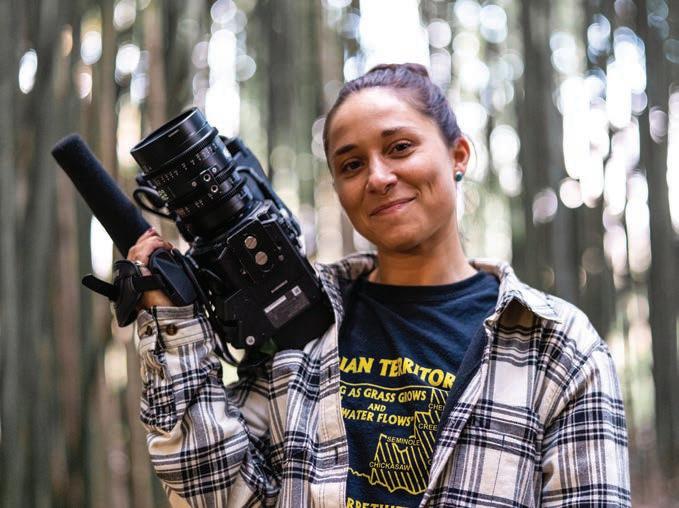
but also for the future of Native representative in film.
“I think we’re coming into this this sort of Native Renaissance with film,” she said. “It’s reminding us we are valuable. Our stories matter. We can be the people who tell those stories. We should be proud of who we are as Cherokee people, and we don’t have to keep our heads down anymore.”
For Daniel Walker, film is a medium not only for showcasing Cherokee identity to the world, but also for building his own understanding about what that means.
Walker, 42, grew up just outside Atlanta with a tribal enrollment card in his wallet but no idea about tribal identity in his head. He and his family traveled to North Carolina multiple times a year to visit the family homeplace in Snowbird or stop by the tourist shops in Cherokee, but they never attended cultural events like the Cherokee Indian Fair or visited extended family.
“It’s a weird feeling being a tourist in your

own culture, and not understanding what truly is your heritage,” Walker said. “For the longest time I thought Cherokees lived in teepees. That’s what I was sold as a kid.”
Now, Walker lives half a world away but is closer than he’s ever been to understanding where he comes from. For the past decade, Walker has lived in South Korea with his wife of 20 years and their sons, ages 12 and 7. The boys are U.S. citizens and EBCI members, and they’re getting old enough to start asking what that means.
“I don’t have answers for them, unfortunately. Which is kind of disappointing to them because Dad should have all the answers to all the questions in the world, right?” Walker said.
When Walker first moved to Korea, he found work writing scripts for product videos. Over time, he got involved with video production, “fell in love with” the process and began pursuing a career in filmmaking, going in with two business partners to found the video production company Flix Oven. So far, Flix Oven has worked on three different Netflix shows — Midnight Asia, Human Playground and Heart of Invictus.
Flix Oven’s long-term goal is to make movies, but in the nearer term it’s looking for solid documentary ideas. Sometime last year, that professional aspiration collided with Walker’s ongoing angst about his ignorance on tribal identity and his inability to answer his sons’ questions. What if, he asked his business partners, he flew to North Carolina to try and figure it all out? What if he made a documentary about his own people, and his own journey toward understanding his place among them?
“Before I started this process, I did not know anybody outside of my family that was an Eastern Band Cherokee,” he said. “No one.”
It took months to start making the connections and having the conversations he needed to have before booking a plane ticket. The 14hour time difference and spam filter-prone Korean IP address didn’t help matters. Finally, he made some contacts and started planning the trip. Walker and his two sons spent a month in Cherokee last fall, timing the trip to coincide with the Cherokee Indian Fair in October.
A month is a long time to travel, but it still felt like a whirlwind.
“I really wish I had more time,” Walker said. “Somebody told me a month isn’t enough. They were right. It wasn’t enough.”
Simultaneously filling the roles of father, documentarian, producer, director and employer — all while embarking on the selfdiscovery journey of a lifetime — was a lot to handle. Yet somehow, while he was in Cherokee, he felt calm. He felt at home.


“Now I’m back in Korea, I feel a lot of these emotions coming back,” he said. “I feel a disconnect, and it hurts in a lot of ways. Once thing that I’ve learned, the distance is not good.”
Asked what he learned from his time in Cherokee, Walker hesitated. He’s still unpacking it all in his mind, he said, but he knows that on this end of his homecoming, he feels a greater acceptance — and a greater purpose — than he did before. In thinking about his
Cherokee heritage, Walker had always been hung up on blood. Only one-quarter of his is Cherokee. Is that enough, he’d wondered? Did he really have a right to claim the heritage he had been born into?
His trip to Cherokee has calmed those fears.
“I feel more now like I’m accepted, and it’s okay to be Cherokee,” he said. “It’s okay to say that I am.”
The flip side of that is responsibility. He came home with a treasure trove of books, and he intends to read them, to learn all he can about his people, their history, their language. He also intends to honor what he now understands to be a core Cherokee value: giving back whatever you take.
“I have to figure out how to give back, not only to the tribal members there in Cherokee, but any others like myself,” he said. “Half of the tribe lives off-boundary. Most of my family lives off-boundary. There’s a lot like me, who want connection, who don’t know where to start. And one of the things I hope to do with this documentary is at least show them a path, a way forward.”
While Daniel Walker and his sons were exploring Cherokee, Anthony Sneed was playing stickball — and, like Walker, making a documentary about the experience. The documentary, “Bastards of the Boundary: Indian Stickball,” chronicles a year in the lives of The Hummingbirds stickball team.
“When I stepped on the field for the first time, my bare feet connecting, there was a spiritual feeling that washed over me that I had never really experienced before,” Sneed said. “I’m really not that kind of person, to be honest with you. I’m not really a religious person, but I had this electricity flowing through me that was kind of crazy.”
On its face, the project, which centers on a uniquely Cherokee tradition, seems at odds with Sneed’s stated goal for his filmmaking career.
“It was important to me to show Native, indigenous faces on screen not doing stereotypical indigenous things,” he said. “That’s important for me. That’s kind of like my MO as a filmmaker, is to just normalize us as human beings.”
Despite the apparent disparity, Sneed said, the goal and the project meld together seamlessly. Like Walker, Sneed grew up away from the Qualla Boundary. Unlike Walker, he remained connected to the Cherokee community and his place in it, often leaving New Jersey to spend summers with his uncle Richard Sneed, who is now the tribe’s principal chief. His film career started in 2008 when he landed the lead role in Frank Henlenlotter’s horror-comedy “Bad Biology.” Since then, he and Henelotter have collaborated on two films. Sneed spent six years studying comedy at New York’s Upright Citizens Brigade and Magnet Theaters and graduated from the director program at the American Film Institute in Los Angeles. He made his directorial debut in 2018 with the dark-comedy short “SUCK.”
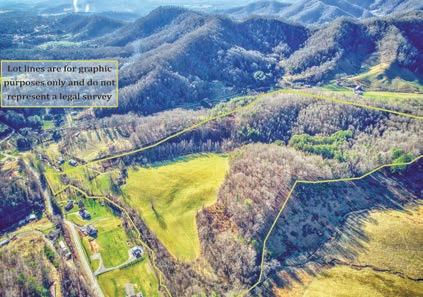























“I always wanted to shoot something Cherokee-based when I was in school, but when you’re in LA you can’t,” he said. “How are you going to find Cherokee actors? You can’t. Not possible.” Sneed’s filmmaking first wandered onto the Qualla Boundary in 2021, when he came to Cherokee to shoot the short film “Stripper.” Over the course of 14 minutes, the movie follows a group of four preteen boys who spend their time hanging out at the skate park and wandering around town. One night, they see the mother of the lead character, Cricket, walk into the strip club. The moment loses him the social currency he had among his friends, even as he protests that his mom is not a stripper. But he doesn’t even convince himself. Cricket tries to ask his mom outright, but he can’t. So he sneaks into the strip club and finds out.
It’s based on a true story, Sneed said — when he was in sixth grade, one of his friend’s fathers told him he’d seen Sneed’s mother walk into a club.
“I was like, completely embarrassed and mortified, and I could never ask my mom if that was true,” he said. “So I wrote a movie about it.”
In a coda scene at the end of the movie, Sneed joins his mother on camera and finally asks her the question that had nagged at him since was 11. She gives him an exasperated, you’ve-got-to-be-kidding-me headshake-sigh,
and the credits roll.


Completing the film “changed my life,” Sneed said. The four boys who played the lead roles — Fenix Taylor, Tayvin Bark, Noah Rossett and Kale Walkingstick — had never acted before, and Sneed had to fly people in to use Native Americans in the camera crew. It was incredibly special to film on his homeland, the Qualla Boundary, with a Native camera crew and showcasing the talent of four 11-to-13-year-old boys who might not otherwise have gotten such an opportunity. It was special, but also difficult.
“Having that diversity behind the camera, it’s tough,” Sneed said. “You have to pay for it. It’s kind of like eating organic in a way. Sometimes you’ve got to drive to the furthest store, and it costs a little bit more money, a little bit more effort. But in the end, it was worth it.”
It was the best on-set experience he’d ever had, Sneed said — he wouldn’t change a thing.
“It was super rewarding in a way that was unexpected,” he said. “We just premiered in LA at the Chinese Theater at the LA Skins Fest and I flew all the boys out, again, killing my credit cards, but it was incredibly beautiful to see them all on stage up there doing a Q&A with me, just representing Cherokee in Hollywood.”
“Stripper” takes place on Native lands and uses Native characters, but it’s not about uniquely Native issues and experiences. And that’s important, Sneed said.
“For me it’s to present us in a normal, human day-to-day life,” he said. “And that’s what it’s like being Cherokee. The culture is there, don’t get me wrong. But the kids are still on Tik Tok. You know what I mean? They’re still going to the skate park. They’re behaving like a normal human. It’s not this outsider idea of what being Native is about.”
“I totally understand it. It changed my perception of pain. It changed my perception of culture. It changed my perception of brotherhood.”
Underneath the uniquely Cherokee surface of the stickball game lies the universal humanity that Sneed hopes to show through his documentary.
In all his work, Sneed aims to show Native people as they are, not as the cultural stereotypes often seen on screen. Given that direction, Sneed’s choice to pursue a documentary on stickball might seem an odd one. A notoriously violent sport played by barefoot, shirtless Cherokee men, stickball is not part of “normal human day-to-day life” for people who aren’t Cherokee.

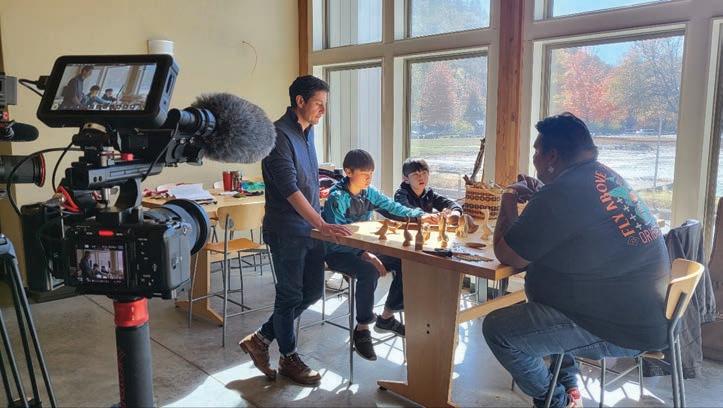
It wasn’t part of life for Sneed, either, until he started playing while filming the documentary last year. Since then, he’s gotten stitches on his face, sprained his ankle and broken his back while on the stickball field. But he plans to keep playing.
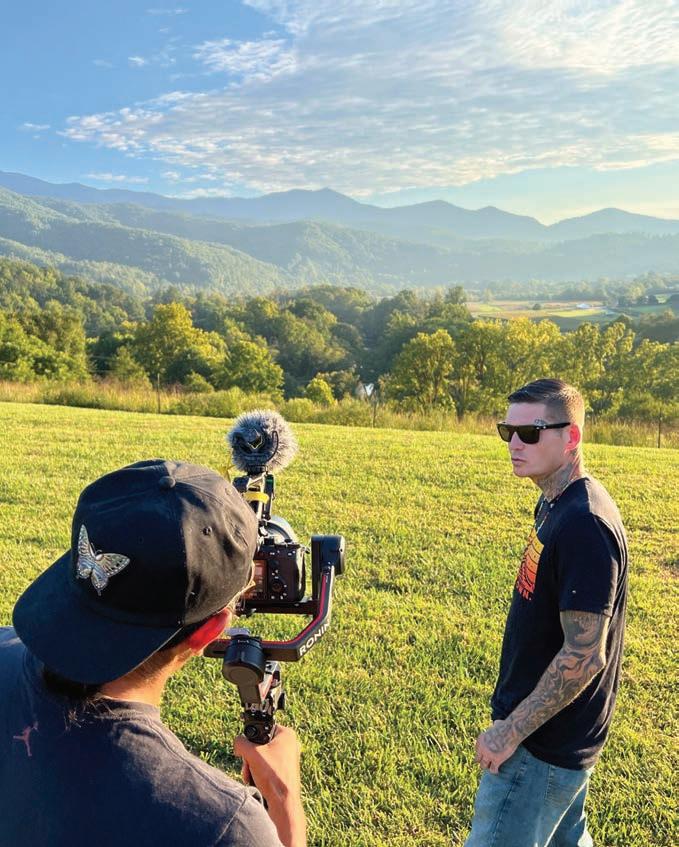
“I completely get why these men go out and play this insanely brutal game,” he said.
“From afar you would think we’re all cultural, we’re all warriors. We don’t say much. You have this exoticism around it,” he said. “But actually, we’re dudes that are talking about whatever, chewing tobacco and spitting out, talking about random, normal stuff. So there’s that component within this package, which is interesting to me, that contrast, and I think it keeps things interesting. Because I don’t want to see the obvious. I want that juxtaposition that is crucial for all good art.”
Culture is a multidimensional thing, and each person within a culture — whether Cherokee or something else — has their own story to tell. The more people telling those stories, the more complete they will be. Hensel, Walker and Sneed all realize this, and all hope their work in the studio will help wedge the door open so that more Native artists can walk through.
“Now my purpose is to tell the stories that I want to tell, but always make sure that I’m helping indigenous people if I can in some way or another,” Sneed said, “whether it’s putting them behind the camera or in front of the camera.”
“Having that diversity behind the camera, it’s tough. You have to pay for it.”
— Anthony SneedDaniel Walker and his sons conduct an interview for Walker’s documentary exploring his Cherokee heritage. Daniel Walker photo Cinematographer Robert Hunter interviews Hummingbirds player Robert Martens for Anthony Sneed’s stickball documentary in a shot overlooking Kituwah Mound. Anthony Sneed photo Blood covers Anthony Sneed’s face after his first stickball practice. Nicholas Vera photo
Beloved Haywood County singer-songwriter Chris Minick will perform at 8 p.m. Thursday, Feb. 2, at The Scotsman in Waynesville.
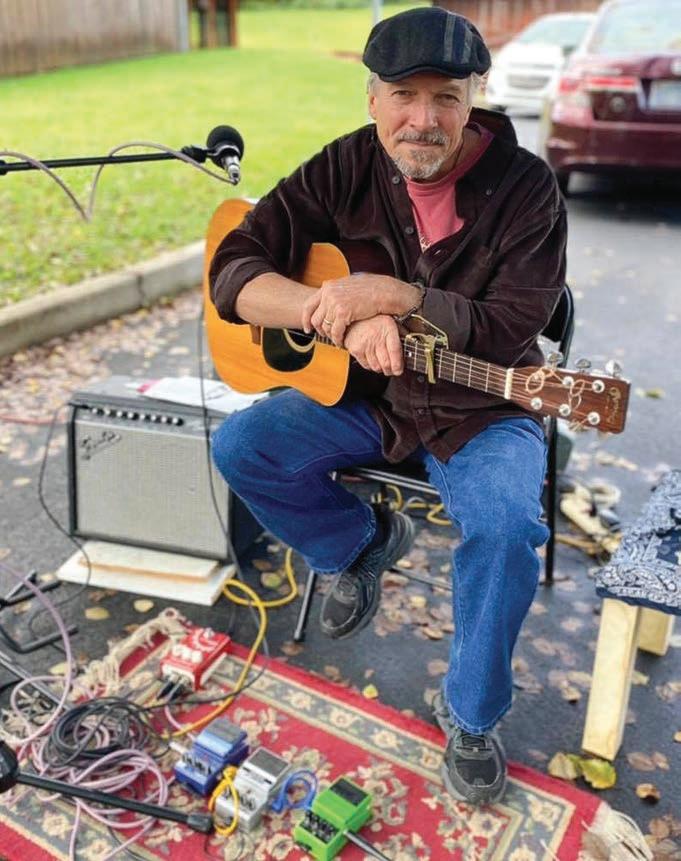
Minick specializes in original material, as well as several notable covers from a widerange of popular folk, rock, and country influences. The show is free and open to the public.


828.246.6292 or scotsmanpublic.com.
There will be a contra dance class offered from 6:30 to 9 p.m. Saturday, Feb. 4, at the Macon County Public Library in Franklin. Contra dance is considered the most accessible and sociable of all dances, with participants moving in two long facing lines or in groups, and with frequent partner changes. With its roots in the British Isles and France, contra dance has become a traditional American dance form.
The Natti Love Joys will perform during the “Bob Marley Birthday Celebration” at 6 p.m. Saturday, Feb. 4, at Frog Level Brewing in Waynesville.
A roots-rock-reggae band that has been playing live since 2003, the group consists of husband and wife duo Anthony “Jatti” Allen and Sonia “Marla” Allen (formerly Sonia Abel).
Jatti was previously the bassist for the reggae group The Congos, while Marla originates from the cult all female reggae group Love Joys, where she recorded two albums under the legendary Wackies label run by Lloyd Barnes (Bullwackie).
Free and open to the public. froglevelbrewing.com/events.
The Pic’ & Play Mountain Dulcimer Players will be resuming in-person jam sessions at the St. John’s Episcopal Church basement fellowship hall in Sylva.
The group welcomes all beginners and experienced dulcimer players, including mountain (lap) dulcimer and hammered dulcimer players. Songs played include tradi-
tional mountain tunes, hymns, and more modern music. The group meets at 1:30 p.m. on the second and fourth Saturday of every month in the basement of St. John’s.
Pic’ & Play has been playing together since 1995. The more experienced members welcome new players, help them navigate their instruments, and guide them through some of the basics of tuning, strumming, and playing.
The mountain dulcimer, also known as a fretted dulcimer or a lap dulcimer, is a uniquely American instrument. It evolved from the German scheitholz sometime in the early 1800s in Appalachia and was largely known only in this region until popularized more broadly in the 1950s.
For more information, call Kathy Jaqua at 828.349.3930 or Don Selzer at 828.293.0074.
Popular regional rock act Andrew Thelston Band will hold a special month-long residency every Saturday evening in The Gem downstairs taproom at Boojum Brewing in Waynesville.
Performance dates will be Feb. 4, 11, 18, and 25. All shows begin at 9 p.m. Free and open to the public. For more on Thelston, click on facebook.com/andrewthelstonmusic.
No experience is needed to contra dance. All dances are taught. Beginners’ lessons start at 6:30 p.m., with dancing from 7 to 9 p.m. No need to bring a partner, but you’re welcome to do so. You may also bring a closed water container and snack. Wear comfortable clothes and shoes. Masks are encouraged, but not required. Please don’t wear perfumes or strong scents. Suggested donation of $10 per person. This project is hosted by the Arts Council of Macon County and supported by a generous gift from The James Edward Hudock Trust.


two-way street, and by all means, I won’t be the first to cast a stone saying I was a saint. That said, I aim to be the best partner I can, and sometimes I miss the mark. We all do. It’s life. Try and be better.
With my 38th birthday right around the corner, I went on a first date last week. It seemed to go well enough that we met back up the very next night to continue our enjoyable conversation from the previous rendezvous.
Who knows what will come of this? It is what it is, you know? But, what I do know is that it felt nice to be on a date, where that side of me is still, well, there, and can be summoned to sit and immerse oneself in the presence of another, of a femme fatale at a corner bar nearing midnight.
The juncture of turning 38 and the first date kind of got the gears rolling along in my mind as to taking inventory of where I currently stand, more so personally than professionally. I get so involved with writing and wandering, with relentless interviews and interactions, where I forget how much time has passed, especially in taking a moment to dedicate to things not work, play, or friend-related.
So, yeah, 38 on Sunday, Feb. 5. Once again, my birthday caught me off-guard. I barely take time these days to notice or acknowledge the holiday season due to work and travel, so blowing out the candles is the last thing on my mind. Shit, I can’t even remember the last time I even did blow out the candles.
Maybe it was my 30th with that Mexican chocolate cake made for me by my publisher’s wife and presented to me during trivia night at the now-defunct Tipping Point Brewing in downtown Waynesville? Sounds about right. Regardless, it’s been awhile, the same goes for a first date, too.

Hot damn, I used to be such a hopeless romantic back in the day. It’s not like it disappeared, it’s just lying dormant somewhere in that beating muscle in my chest. I used to buy cute girls flowers, jewelry, plan dates in the depths of Mother Nature, surprise road trips, and handwritten letters of gratitude for the budding romance.
It’s not that I’m jaded in my late 30s. I just think one’s existence, of fate and females, can slowly chisel away at the emotional energy needed to conjure that hopeless romantic side of me. Now, don’t get me wrong, it’s all a
When I was 18 and dating my high school sweetheart, I figured we’d stay together through college, get married in graduate school, have a house and kids by our mid-to-late 20s. Oh, and two Labradors to boot, one yellow and one black. But, we broke up by Christmas our freshman year in college. Tossed to the wolves of chance and circumstance. Pass me a cold one from the dorm room fridge, I need to forget what just happened.
But, you don’t forget. Never. You add that whirlwind experience and eventual outcome, whether desired or not, to your toolbox of how to handle the universe and what it throws at you. Since college, there’s been numerous girlfriends and eventual outcomes. Some for a short time, others years. None of which were permanent as I type this column from my humble abode with just enough room for a bachelor rolling along towards the 40th marker in just a couple years.
You see, when you’re younger you might find a chip on your shoulder when things don’t go your way. Why didn’t it work out?
What did I do wrong? Was I good enough? What could have been done differently? You knock yourself down trying to make sense of it all. You replay everything in your head a million times, and to no result to remedy the situation.
But, the beauty of getting older, or least
A special stage production of “Loves of Elaine” will be performed at 7:30 p.m. Feb. 3-4, 10-11, and 2 p.m. Feb. 5 and 12 in the Fangmeyer Theatre at the Haywood Arts Regional Theatre in Waynesville.
1
Popular regional rock act Andrew Thelston Band will kick off his February residency at 9 p.m. Saturday, Feb. 4, in The Gem downstairs taproom at Boojum Brewing in Waynesville.
2
3
The Natti Love Joys will perform during the “Bob Marley Birthday Celebration” at 6 p.m. Saturday, Feb. 4, at Frog Level Brewing in Waynesville.
4


Lazy Hiker Brewing (Franklin) will host The V8s (rock/soul) 7 p.m. Saturday, Feb. 4.

5
Beloved Haywood County singersongwriter Chris Minick will perform at 8 p.m. Thursday, Feb. 2, at The Scotsman in Waynesville.

what I’ve found rounding the corner to age 38, is that you realize it, truly, is what it is. Each one of us is a vibrating dot bouncing through the world, running into other dots, to stick to those dots or ricochet in any direction towards the next dot.

That, and all you can really ask for in this life is to be a better person today than you were yesterday. Easier said than done, I know. But, making a mental note in doing so is the first step in positive, tangible change. Being self-defeating is never the answer, and this goes for anything worthwhile in life, any aspirations you may have with a career or matters of the heart.
Who knows what will come of that recent first date? I had an absolute blast. And, by all accounts, it seemed like she did, too. Only time will tell. What I do know is that, at 38, my mind is at ease with how the cards have fallen. The restlessness of the past few years, of the pandemic and whatever was bothering us before that era in our respective lives, is slowly fading into the background.
Remember, time doesn’t exist. Only memories do, so make good ones, new ones to hold and cherish. We aren’t all zombies going back and forth between our homes and whatever responsibilities we adhere to. Go on that first date and rekindle that spark within. We ain’t here for a long time, just a good time, or whatever that country song said.
Happy birthday to me, I suppose. But, my thoughts on Sunday, Feb. 5, will mostly be about the work done within in my mid30s onward to circle back to my true self, that wild-eyed teenager who would do anything to make a woman smile, who ran towards the unknown horizon of dreams with a reckless abandon. He’s still there. I know that to be true in my heart-of-hearts. Life is beautiful, grasp for it, y’all.
‘Either way I wonder sometimes about the outcome of a still verdictless life’The Times Bar in Asheville. (Garret K. Woodward photo)
• Altered Frequencies (Franklin) will host semi-regular live music on the weekends. 828.342.8014 or alteredfrequencies.net.
• Balsam Falls Brewing (Sylva) will host an open mic from 8 to 10 p.m. every Thursday. Free and open to the public. 828.631.1987 or balsamfallsbrewing.com.
• Folkmoot Friendship Center (Waynesville) will host semi-regular live music on the weekends. For tickets, click on folkmoot.org.
• Fontana Village Resort Wildwood Grill will host semi-regular live music on the weekends. Free and open to the public. 800.849.2258 or fontanavillage.com.
noted. Free and open to the public. innovation-brewing.com.

• Innovation Station (Dillsboro) will host “Music Bingo” on Wednesdays and semiregular live music on the weekends. All events begin at 7 p.m. unless otherwise noted. Free and open to the public. innovation-brewing.com.
Feb. 9 and TransEnd (rock/pop) 9 p.m. Feb. 11. All shows begin at 8 p.m. unless otherwise noted. Free and open to the public. 828.246.6292 or scotsmanpublic.com.
• SlopeSide Tavern (Sapphire) will host semiregular live music on the weekends. Free and open to the public. 828.743.8655 or slopesidetavern.com.
• Blue Ridge Beer Hub (Waynesville) will host a semi-regular acoustic jam with the Main Street NoTones from 7 to 9 p.m. every first and third Thursday of the month. Free and open to the public. For more information, click on blueridgebeerhub.com.
• Boojum Brewing (Waynesville) will host karaoke at 8:30 p.m. on Wednesdays, trivia at 7 p.m. on Thursdays and Andrew Thelston (rock/jam) Feb. 4. All shows begin at 9 p.m. unless otherwise noted. 828.246.0350 or boojumbrewing.com.
• Currahee Brewing (Franklin) will host semiregular live music on the weekends. Free and open to the public. 828.634.0078 or curraheebrew.com.
• Farm At Old Edwards (Highlands) will host the “Orchard Sessions” on select dates. Tickets start at $25 per person. oldedwardshospitality.com/orchardsessions.
• Frog Level Brewing (Waynesville) will host Natti Love Joys (reggae/soul) Feb. 4. All shows begin at 6 p.m. unless otherwise noted. Free and open to the public unless otherwise noted. 828.454.5664 or froglevelbrewing.com.
• Frog Quarters (Franklin) will host Rey Phillip (singer-songwriter) Feb. 4 and George James (pop/country) Feb. 11. All shows are from 11 a.m. to 2 p.m. Free and open to the public. Located at 573 East Main Street. littletennessee.org or 828.369.8488.
• Harrah’s Cherokee Casino Resort (Cherokee) will host REO Speedwagon (classic rock) 8:30 p.m. Feb. 3. For a full schedule of events and/or to buy tickets, caesars.com/harrahs-cherokee.
• Innovation Brewing (Sylva) will host “Trivia Night with Kirk” from 7 to 9 p.m. every Tuesday, Open Mic Night every Wednesday and Shain Lyles (singer-songwriter) Feb. 11. All shows begin at 7 p.m. unless otherwise
• Lazy Hiker Brewing (Franklin) will host “Music Bingo” 6 p.m. Tuesdays, trivia 6:30 p.m. Wednesdays, Open Mic 6:30 p.m. Thursdays and The V8s (rock/soul) Feb. 4. All shows begin at 7 p.m. unless otherwise noted. Free and open to the public. 828.349.2337 or lazyhikerbrewing.com.
• Lazy Hiker Brewing (Sylva) will host trivia 6:30 p.m. Wednesdays, Old Time Jam 6:30 p.m. Thursdays and semi-regular live music on the weekends. All shows begin at 8 p.m. unless otherwise noted. Free and open to the public. 828.349.2337 or lazyhikerbrewing.com.
• Meadowlark Motel (Maggie Valley) will host semi-regular live music on the weekends. 828.926.1717 or meadowlarkmotel.com.
• Moss Valley (Franklin) will host semi-regular live music on the weekends. Free and open to the public. Food trucks and beverages available onsite. Bring a lawn chair. Presented by Drake Software.
• Orchard Coffee (Waynesville) will host semiregular live music on the weekends. Tickets available at the shop. 828.246.9264 or orchardcoffeeroasters.com.
• Quirky Birds Treehouse & Bistro (Dillsboro) will host Open Mic Night at 7 p.m. Tuesdays and semi-regular live music on the weekends. Free and open to the public. 828.586.1717 or facebook.com/quirkybirdstreehouse.
• Rathskeller Coffee Haus & Pub (Franklin) will host semi-regular live music on the weekends. Shows begin at 8 p.m. Free and open to the public. 828.369.6796.
• Salty Dog’s Seafood & Grill (Maggie Valley) will host semi-regular live music on the weekends. Free and open to the public. 828.926.9105.
• Satulah Mountain Brewing (Highlands) will host semi-regular live music on the weekends. 828.482.9794 or satulahmountainbrewing.com.
• Sauced (Waynesville) will host semi-regular live music on the weekends. Free and open to the public. 828.246.9585 or saucedwnc.com
• The Scotsman (Waynesville) will host Chris Minick (singer-songwriter) Feb. 2, “Dead Night” w/Lee Cramm (Grateful Dead tribute) Feb. 3, Sarah Gwendolyn (bluegrass/country)
• Smoky Mountain Center for the Performing Arts (Franklin) will host Scott Thompson & Brother Mojo w/A. Lee Edwards & Co. 7 p.m. Feb. 11. For more information and/or to purchase tickets, click on smokymountainarts.com or 828.524.1598.
• Southern Porch (Canton) will host semi-regular live music on the weekends. 828.492.8009 or southern-porch.com.
• Stecoah Valley Center (Robbinsville) will host semi-regular live music on the weekends. 828.479.3364 or stecoahvalleycenter.com.
• The Ugly Dog Pub (Cashiers) will host semiregular live music on the weekends. 828.743.3000 or theuglydogpub.com.
• Unplugged Pub (Bryson City) will JC “Parrothead” Feb. 1 and 8, DJ Terry Mooney Feb. 2, Tricia Ann Feb. 3, Outlaw Whiskey Feb. 4, Blackjack Country Feb. 9, Rock Holler Feb. 10 and Keil Nathan Smith & Sudden Change Feb. 11. All shows begin at 8 p.m. unless otherwise noted. Free and open to the public. 828.538.2488.
• Valley Cigar & Wine Co. (Waynesville) will host semi-regular live music on the weekends. All shows are at 2 p.m. unless otherwise noted. Free and open to the public. 828.944.0686 or valleycigarandwineco.com.
• Valley Tavern (Maggie Valley) will host semiregular live music on the weekends. All shows begin at 6 p.m. unless otherwise noted. Free and open to the public. 828.926.7440 or valley-tavern.com.
• Water’n Hole Bar & Grill (Waynesville) will host semi-regular live music on the weekends. All shows begin at 9:30 p.m. 828.456.4750 or facebook.com/waternhole.bar.
• Whiteside Brewing (Cashiers) will host semi-regular live music on the weekends. 828.743.6000 or whitesidebrewing.com.
• Wine Bar & Cellar (Sylva) will host semiregular live music on the weekends. 828.631.3075 or facebook.com/thewinebarandcellar.
• Yonder Community Market (Franklin) will host semi-regular live music on the weekends. Free and open to the public. Donations encouraged. 828.200.2169 or eatrealfoodinc.com.
A special reception for the Bartram Trail Kinship photography showcase will be held from 4:30 to 6:30 p.m. Friday, Feb. 10, at the Macon County Public Library in Franklin.
Photos from the Kinship Photograph Project along the Bartram Trail are on display in the Meeting Room this winter. During the reception, attendees will celebrate and learn more about the work. For more information, click on kinship.photography.

• “Flights & Bites” will be held starting at 4 p.m. on Thursdays and Fridays at Bosu’s Wine Shop in downtown Waynesville. For more information on upcoming events, wine tastings and special dinners, click on waynesvillewine.com.
• A free wine tasting will be held from 6 to 8 p.m. every Thursday and 2 to 5 p.m. every Saturday at The Wine Bar & Cellar in Sylva. 828.631.3075.
• “Take A Flight” with four new wines every Friday and Saturdays at the Bryson City Wine Market. Select from a gourmet selection of
• Southwestern Community College Swain Arts Center (Bryson City) will host an array of workshops for adults and kids. For more information on the upcoming classes and/or to sign-up, click on southwesterncc.edu/scclocations/swain-center.


• Dogwood Crafters in Dillsboro will host an array of upcoming art classes and workshops. For more information and a full schedule of activities, click on dogwoodcrafters.com/classes.html or call 828.586.2248.
charcuterie to enjoy with your wines. Educational classes and other events are also available. For more information, call 828.538.0420.
• “Uncorked: Wine & Rail Pairing Experience” will be held from 10:30 a.m. to 3 p.m. on select dates at the Great Smoky Mountains Railroad in Bryson City. Full service all-adult first class car. Wine pairings with a meal, and more. For more information and/or to register, call 800.872.4681 or click on gsmr.com.
The 2023 “Season Auditions” for the Haywood Arts Regional Theatre (HART) will take place at 5:30 p.m. Sunday, Feb. 5, and at 6:30 p.m. Monday, Feb. 6, at the theatre in Waynesville.

Participants will get a chance to audition for “Big Fish,” “Calendar Girls,” “Cinderella,” “Spamalot,” “Good ‘Ol Girls,” and “Death of a Salesman” all in one night.
• Bring a headshot and resume for every director you plan to audition for. HART will not be making copies this year.
• Prepare a 16 to 32 bar cut of music (between 60 and 90 seconds) if you plan to audition for a musical. HART will have a piano accompanist.
• Directors have outlined if they want you to prepare a monologue or story in their character breakdowns. Please give them a look.

• If you plan to audition for multiple musicals, you may be at HART until 9 p.m. or later.
As well, there will be additional auditions for the following productions: “Kids at Hart: Alice in Wonderland” (Feb. 4-5), “Every Brilliant Thing” (Feb. 11) and “Elephant’s Graveyard” (Feb. 12).
For more information and/or to sign-



up for the auditions, click on harttheatre.org./auditions.
The Haywood Arts Regional Theater in Waynesville is currently offering a wide variety of classes in the theater arts for all ages, young and old. Whether you are just starting out or want to hone your skills, HART has opportunities for you.
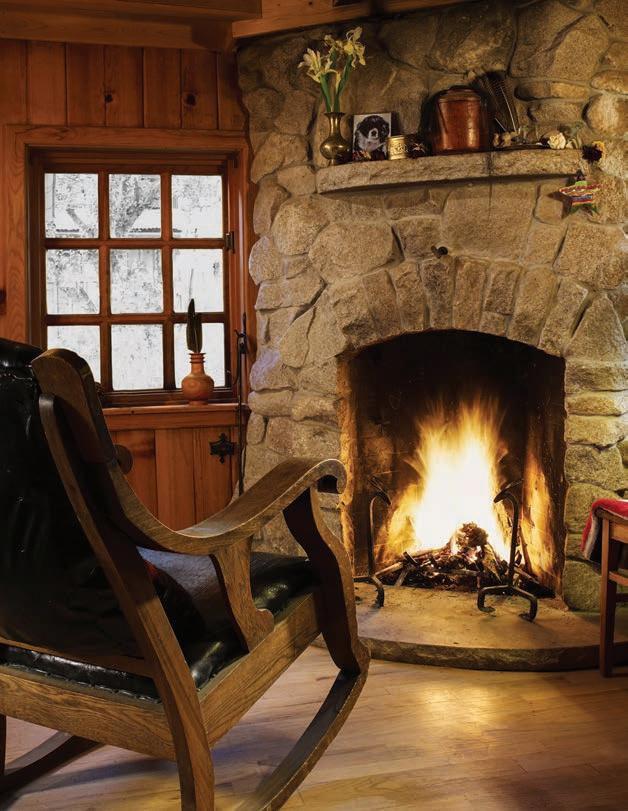
Sign up your youngest one or grandkid who has a ton of creative energy but doesn’t know how to focus it yet. Or sign up that young theatre enthusiast who is looking to learn more and find a group of like-minded friends that will last a lifetime. Or maybe this is the sign you have been waiting for to finally gain the courage to step on stage. Whatever the desire, HART has a class that is waiting for you.
Classes run through March 2. HART prides itself on offering reasonably priced classes so that they can keep the arts alive in Haywood County. Browse the selection of spring classes at harttheatre.org and sign up today for a chance to change your life and discover your hidden talents and passions.
For more information, contact Artistic Director Candice Dickinson at 646.647.4546 or email candice@harttheatre.org.
A special stage production of “Loves of Elaine” will be performed at 7:30 p.m. Feb. 34, 10-11, and 2 p.m. Feb. 5 and 12 in the Fangmeyer Theatre at the Haywood Arts Regional Theatre in Waynesville.
After local leading lady, Lyn Donley, found a trunk full of love letters written to her mother, she knew it was too good to not share. When we are young, we see our mother through narrow lenses. She is our whole world, and we think we are hers. As adults, our relationships with our parents change and we grow closer, yet often there forever remains a mysterious unknown side to them we crave to know, but usually never will.
But, what if your mom leaves behind clues
to a life you never knew about? Clues that make you see her in a whole new beautiful light? Donley found such clues after losing her mother a few years ago. In fact, a whole treasure trove of love letters.

Slowly, she uncovered decades of love and passion her mother had hidden from her and together with her friend, CJ Deering, wove the missing pieces of her mother’s tapestry in the play, “Loves of Elaine.”
This show is rated PG-13 for strong language. Tickets are $20 for adults, $10 for students. To purchase tickets, click on harttheatre.org or by calling the Box Office at 828.456.6322. Winter Box Office hours are 3 to 5 p.m. Monday, Wednesday, and Friday.
Samuel Clemens, best known by his penname Mark Twain, is arguably the master of American novelists, with his great classic “Huckleberry Finn” along with such stories as “Tom Sawyer,” “A Connecticut Yankee in King Arthur’s Court,”and “The Gilded Age.” He was a master of the short story, brought the West alive in “Roughing It,” and took readers on a tour of Europe and the Holy Land in “Innocents Abroad.” Some of his essays and his autobiography also receive the honorific of outstanding.
Yet for most of his life, the theater-loving Twain tried and repeatedly failed to write a play that would attract fame and large audiences. One such attempt, “Colonel Sellers,” did earn him some money, but he regarded it, as did the critics, as a paltry thing.
In “Is He Dead? A Comedy in Three Acts” (University of California Press, 2006, 248 pages), we can detect the possible reasons for Twain’s failure to become a successful playwright.

Twain wrote this farcical satire in 1898 in Vienna, Austria. Still under a black cloud caused by the death of his 24-year-old daughter Susy in the summer of 1896 and plagued by problems of finance and bankruptcy, he had spent long months in a state of despair, too depressed even to write. As he began putting together “Is He Dead?,” however, his spirits lifted tremendously, and Twain convinced himself that his comedy would be performed in the best theaters of London and New York.
Despite his world-wide name recognition, that long-sought acclamation never occurred. Like so many of his other works for the stage, “Is He Dead?” was roundly rejected by producers. For over a century, the play went unpublished and unremarked except by a few specialists until Twain scholar Shelley Fisher Fishkin found the manuscript and deemed it worthy of publication.
The play centers on a group of impoverished artists, headed up by Jean Francois Millet, painter of the famed “Angelus” but otherwise nothing like the real artist. These





painters and some others involved with them are threatened with eviction and financial ruin by a wicked art dealer and loan shark, Bastien Andre. One of these artists, the American Agamemnon Buckner, called “Chicago” by his fellow painters, devises a plan to save his friends. He convinces Millet to fake his own death, thereby causing his paintings to explode both in popularity and in price. The plan works to perfection, the wicked Andre’s plans come to naught, and Millet’s name becomes known throughout the land.
Romance also takes a hand in the play, as both Chicago and Millet are in love with a pair of sisters. In the last part of the play Millet cross-dresses, pretending to be his own non-existent twin sister and confusing the girl who loves him, thereby adding to the chaos and humor.
Yet several of these devices employed by Twain — he used them as well in his fictions — are as old as the theater. The language can be creaky, some of the accents ring false, and so many characters come and go on the stage that the first act found me constantly looking back at the cast list to identify one from another.
And yet ….




Most plays are not meant for paper and print, but for performance. In the winter of 2007, Mark Twain finally made the big lights of the stage when “Is He Dead?” came to Broadway. Directed by Michael Blakemore with the script tweaked by writer David Ives, and performed by a glittering cast, Twain’s long-forgotten comedy made a splash in New York and has since been presented by some drama departments around the country.
In her “Afterword” and “Notes” to “Is He Dead?” which run nearly as long as the play itself, Shelley Fishkin explores Twain’s life at the time he wrote this comedy, the background of its settings and characters, and the reasons she believed it was worthy of revival. Readers interested in the life of Twain and his work will find much of interest to mull over here. Fishbin concludes her analysis by writing “The result is a champagne cocktail of a play — not too dry, not too sweet, with just the right amount of bubbles and buzz.”
Some readers may disagree with that evaluation — regrettably, I’m one of them — but reviving this Rip Van Winkle of a play is nevertheless an occasion. The work is complete, contains many elements common to his other writings, and deserves its place on the shelf alongside his other works.
•••
And now for a complete change of direction: Having spent both Christmas and New Year’s hip-deep in grandchildren, I once again became aware of the importance of reading aloud to the little ones. In large part because the stories and poems shared with him by his parents and his older siblings, the youngest member of this crew, though he cannot yet read himself, has a love affair with books. I’ve seen him sit for up to an hour on the sofa or sprawled out on the floor of the den in front of a fire, utterly absorbed in some tale of Tin-Tin or the Knights of the Round Table.
If we want to raise a generation of book lovers, let’s start them early. No devices or screens are necessary, just colorful illustrations, words, a reader, and the imagination.

It’s that simple.

(Jeff Minick reviews books and has written four of his own: two novels, “Amanda Bell” and “Dust On Their Wings,” and two works of nonfiction, “Learning As I Go” and “Movies Make the Man.” minick0301@gmail.com.)

A monthly book club is being currently offered at the Jackson County Public Library in Sylva. Each month, a library staff member will be discussing some of the new book titles that the library has received. Particular attention will be paid to “under the radar” titles and authors, new releases, and other books that the staff is excited about. All are welcome and no registration is required. For more information on when the club will meet, please call the library at 828.586.2016.
This club is co-sponsored by the Friends of the Jackson County Public Library. The JCPL is a member of Fontana Regional Library (fontanalib.org).
1. The condition in which a person is unable to move due to the presence of a cat on her or his lap.


Less than a year after founder Kent Cranford sold his three Motion Makers Bicycles stores to Specialized Bicycles, the company announced a sudden decision to pull out of the Cherokee location it had shared with Bryson City Outdoors since 2020.
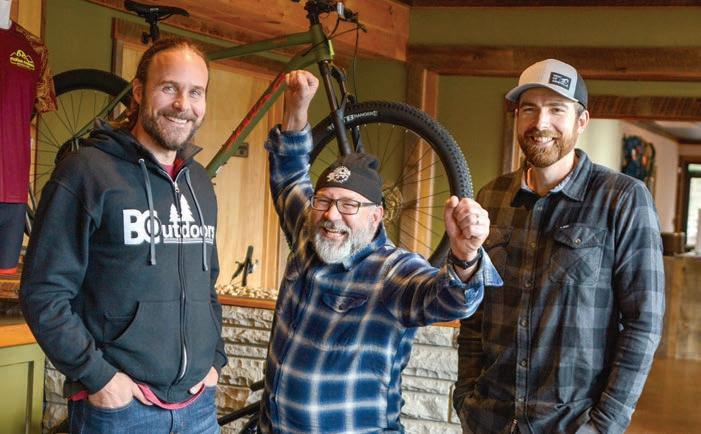
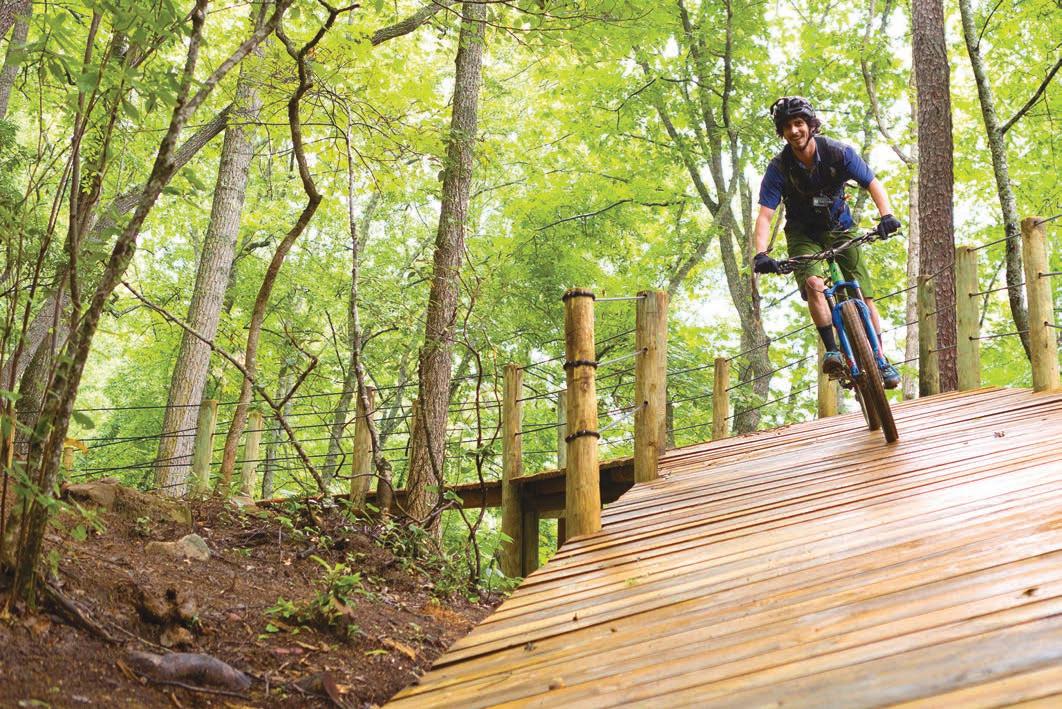
“While we are sad to announce we are closing down our Cherokee location, we are beyond appreciative to the community of Cherokee for letting us help grow the bike scene and are incredibly excited to continue and support its development through our Sylva shop down the road,” read a Jan. 12 Facebook post from Motion Makers. “Thanks everyone for the support and we’re excited for the future!”
By Jan. 15, Motion Makers was gone from Cherokee.

The decision — which Bryson City Outdoors co-owner Ben King said he found out about just a couple days before the Facebook post — caught the business off guard, forcing it to make a swift decision. Bryson City Outdoors will not only stay in Cherokee but will expand to offer the bicycle-
related services previously provided by Motion Makers, as well as a taproom and lounge area.
“There’s no community in Western North Carolina, probably North Carolina, that’s investing as much money into infrastructure when it comes to the outdoors, so we see a lot of potential there,” King said. “The community members over there are really embracing it. It’s great to see so many people out and being active and trying new things. We just want to be a part of that.”
Motion Makers had been in Cherokee since 2018, when it opened a store on Big Cove Road in partnership with Franklin-based Outdoor 76. Logistical challenges with the building and with travel between its three stores in Cherokee, Franklin and Clayton, Georgia, led Outdoor 76 to leave less than two years later, and in January 2020 Motion Makers moved to a new location on Tsali Boulevard with a new roommate — Bryson City Outdoors. Motion Makers took the front of the building and Bryson City Outdoors took the back, where it sold all manner of gear and supplies and operated an alcohol-free taproom. They called the establishment Fire Mountain Outpost.
In April 2022, Motion Makers owner Kent Cranford announced that he’d sold all three stores for the business he founded 36 years earlier to Specialized, a bike company that has a global presence and had been Motion Makers’ main supplier. The announcement came about half a year after Cherokee voters approved a referendum question that vastly expanded businesses’ ability to serve alcoholic beverages
on tribal lands. King said that Bryson City Outdoors immediately began considering serving beer on draft at Fire Mountain Outpost but held back once it found out Motion Makers had been sold, waiting to see what direction the new owners would take.
“Then all of a sudden, we find out oh, they are leaving, which I think everybody sort of expected a little bit more notice,” King said. “But since we’ve already been thinking about it, we had a couple quick conversations and we’re like, alright, let’s do it. We’ll take the whole space and we’ll try our hand at keeping
up with bikes in that community.”
Now, Bryson City Outdoors occupies the entire building. The store is closed while the business implements myriad changes, with a date for the grand reopening forthcoming. King said he hopes to have the store open sometime in March so it can be up and running with any kinks worked out in time for the Fire Mountain Inferno, which takes place April 22-23 on the Fire Mountain Trail System in Cherokee. The event usually uses the fairgrounds across the street as a staging area, but the fairgrounds are closed for renovations. This year, the parking lot surrounding Bryson City Outdoors and abutting the Oconaluftee River will host it instead.
“We want to try to be our best selves for presentation when everybody’s in town for that,” said King.
That “best self” will include a long list of offerings and additions. Notably, Bryson City will get into the bicycle game for the first time in its history — Tsali Cycles has always filled Bryson City’s need for bike-related services. But starting soon, customers at the Cherokee store will be able to buy bikes — including ebikes and BMX bikes — rent mountain bikes, purchase skateboards and Onewheels and access bike mechanic services. The store will also sell accessories for this equipment.
The store will also make improvements to further establish itself as a community hub for outdoor adventurers. Pending approval from the Tribal Alcoholic Beverage Control Commission, the store will begin offering beer in its taproom — something that was not a possibility when it first opened in 2020. Food trucks will be on site regularly, and the store will feature patio seating out front and on the river as well as an indoor lounge encouraging people to hang out both before and after their adventure.
“The bike world is new for us,” King said. “I think just that challenge in itself will be a little bit of a learning curve, but we’re ready to absorb that. And then also, F
The annual Haywood County Extension Master Gardener plant sale is now underway, with pre-paid orders due by March 3.
The plant sale offers edibles such as berries and asparagus alongside perennials, including hard-to-find native plants, with the sale’s organizers promising “excellent” prices. Edible orders will be available for pickup April 15 and
perennials May 20. Also on May 20, Master Gardener Volunteers will be selling plants and seed starts from their own gardens, as well as hand-crafted yard art.
Find order forms online at haywood.ces.ncsu.edu, pick them up at the Extension Office on Raccoon Road in Waynesville or contact 828.456.3575 or mgarticles@charter.net. Proceeds from the sale fund educationrelated horticulture projects in Haywood County, including elementary school gardens, community gardens and demonstration gardens.
can use the area, but many trails cater specifically to mountain bikers and are peppered with tantalizing obstacles and terrain. The trail system hosts a bevy of races and competitions each year. Last May, the tribe opened Fire Mountain Disc Golf Sanctuary, which Hyatt said is doing “extremely well” and receiving high user ratings that are “unheard of” for such a new course.

Friends of DuPont Forest has received $99,000 in grants from the Tourism Development Authorities in Henderson and Transylvania counties. The money will help fund creation of a master recreation plan to

experiences today. Now, more than 1 million people from across the country visit DuPont Forest each year.
“We believe the best way to protect the Forest is to plan for its future, and that is why we have long advocated for a Master Recreation Plan,” says Sara Landry, Executive Director of Friends of DuPont Forest. “We are incredibly excited to have both counties so invested in our public lands.”
The grants will supplement $750,000 allocated to the North Carolina Forest Service by the General Assembly in late 2021. That legislation included $200,000 to develop a Master Recreation Plan. The General Assembly allocated an additional $550,000 for implementing the plan once it has been developed.
we have a lot of mentors in the industry that hopefully will give us a good little kickstart to get going.”
Bryson City Outdoors’ cheerleaders include Fire Mountain Trails and EBCI Secretary of Operations Jeremy Hyatt. The business’s expansion is “great for us,” Hyatt said.
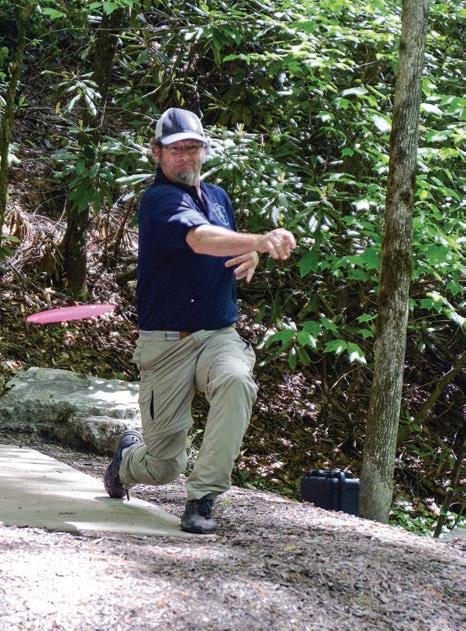
“I am really rooting for them, and I really hope it creates a real buzz in Cherokee,” he said.
Since Fire Mountain Trails opened in 2017, Cherokee has been working to position itself as an outdoor hub and destination for mountain bikers in particular. Fire Mountain Trails boasts more than 10 miles of trails. Both hikers and mountain bikers
Planning is underway for even more biking destinations in Cherokee. Design is about 85% complete for a bike skills park and pump track designed to offer a lower entry point for beginning riders than is available on the current Fire Mountain Trails system. That project is expected to be complete sometime in 2024. Hyatt had wanted it to include an additional 8-10 miles of mountain bike trail, but due to cost escalations that portion of the project was sidelined and will be completed at a later date. Meanwhile, the tribe is working with the Town of Sylva to plan a trail system on 912 acres of ridgetop land that, once built, will be the highest trails east of the Mississippi open to mountain bikers.
That’s all in addition to Cherokee’s proximity to the second-busiest entrance to America’s busiest national park. In 2022, 12.97 million people visited the Great Smoky Mountains National Park, and 2.53 million of them arrived through the Oconaluftee entrance just a few miles outside Cherokee. While visitation declined 8.4% in the park overall compared to 2021, visitation at the Oconaluftee entrance fell a modest 1.6%.
“I really think the outdoor industry in this area has a lot of support behind it,” King said, “and I only see growth happening for that community.”
Specialized did not reply to a request for comment.

plan a sustainable future for DuPont State Recreational Forest.


When DuPont State Recreational Forest opened to the public in 1995, it included a system of trails, roads, and facilities that were not designed for the level of visitation it
The Forest Service has hired Mattern & Craig, which will collaborate with IBI Consulting, C2 Recreation Consultants and Terra Incognito Trail Consultants to develop the plan. The company will use research, public involvement and direct observation to inform the recommendations that it puts forth. Master recreation plans typically make recommendations for future trail system management and other measures aimed at protecting forest resources and natural communities and improving the experience of current and future visitors.



Anytime you're ready! Individuals and Teams
Find a place to plunge your bathtub, a kiddie pool, your front yard with a hose, or a local waterway, anything counts as long as that water is cold!

Challenge Friends & Family to participate or form a team. Record your plunge and enter Best Plunge and Best Costume Awards.


“I really think the outdoor industry in this area has a lot of support behind it, and I only see growth happeningfor
that community.”
— Ben KingDuPont’s many waterfalls are a draw for visitors. File photo
A series of hikes and a birdwatching trip organized by Haywood County Recreation and Parks this month will offer a chance to explore wintertime in Haywood County.
■ A 6.7-mile hike on the Blue Ridge Parkway starting 9 a.m. Saturday, Feb. 4, will offer a chance to enjoy the road’s world-class views with no cars around. This out-andback hike will start at the intersection with U.S. 276 and go to Pisgah Inn Campground for an elevation change of just under 300 feet.
■ Go birding with Howard Browers at 9 a.m. Saturday, Feb. 11, at Lake Junaluska. The group will walk around the lake for what could be one of the last looks at migratory birds and waterfowl in their winter home.
■ Hike in the Lake Logan Retreat area at 9 a.m. Friday, Feb. 17, with a 4.5-mile hike visiting Inman Chapel and Lake Logan Gazebo and taking in a beautiful, quiet part of the Cold Mountain Game Lands. The hike starts just before Lake Logan and ends lakeside, with an elevation gain of 928 feet.
■ Explore a section of the Art Loeb Trail starting 8:30 a.m. Saturday, Feb. 25. The 7.9-mile section starts at the U.S. 276/64 intersection and is a point-to-point hike. With an elevation gain of 2,232 feet, it is considered a moderate/difficult hike.
All hikes are $10. Sign up at bit.ly/haywoodrec.
Glass Rock (north face) and North Cedar Rock
■ Appalachian District — Whiterock Cliff and Buzzard’s Roost

■ Grandfather District — Shortoff Mountain South, Shortoff Mountain North, Bynum Bluff, N.C. Wall from Tightrope to Bumblebee Buttress, Apricot Buttress, the Camel and Big Lost Cove Cliffs
Wildlife biologists in North Carolina have been working since the 1980s to help peregrine populations recover after they dwindled to just one mating pair in North Carolina in the 1950s. In 2022 across Western North Carolina, 14 sites were occupied by peregrine falcon pairs and seven successfully reproduced with a total of 15 offspring. Two additional sites were occupied by a single, unpaired bird.
Twelve rock faces in the Pisgah and Nantahala National Forests are closed to climbing, rappelling, hang-gliding and other activities through Aug. 15 in order to protect the rare peregrine falcons that nest

there.
Closed rock faces are:
■ Nantahala District — Whiteside Mountain and Pickens Nose (east face)
■ Pisgah District — Victory Wall, Looking


Nesting success is perhaps the greatest challenge to species recovery. If a nesting pair is disturbed, they will leave the site and may not nest again until the following year. Disturbance can also prompt young chicks that have not yet learned to fly to run off the edge of the cliff to escape.
The Tremont Institute Bridge in the Great Smoky Mountains National Park will be closed Feb. 11-12 for routine bridge improvements. Bridges on Tremont Road, Cataloochee Entrance Road and Big Creek Entrance Road also recently received improvements, including railing and deck replacement and installation of running boards. The work is part of a $1.3 million contract the Federal Highway Administration awarded to Bryant’s Land and Development Industries, Inc. of Burnsville in November.
17 Trails Open 3 Aerial Lifts 2 Surface Lifts 53-61 Inch Base Weekdays: 9:00am – 10pm Weekends: 8:30am – 10pm




Registration is open for two upcoming sessions of Outdoor Adventure Kids, or OAK, at the N.C. Arboretum in Asheville.
OAK is open to kids ages 6-13 and runs

Fridays 12:30 to 4:30 p.m., with the first session March 3-31 and the second session April 14 through May 12. OAK participants in past sessions have made natural dyes


with collected plants, looked for treasures while geocaching, explored pond and streams, built natural shelters to withstand the elements and practiced fire building.
Learn more or sign up at ncarboretum.org/educationprograms/youth-family-programs/oakdrop-off-program.
Children struggling to learn how to ride a bike can get some help with a class 10 a.m. to noon Saturday, Feb. 18, at REI in Asheville.
Kid-friendly instructors will provide a combination of personalized and group instruction to help overcome fears, teach important skills such as starting and stopping and help kids understand how to maneuver their bike around obstacles. Students should arrive with their own bike with the training wheels removed, and should be able to sit on the seat with their feet flat on the ground.
Aimed for ages 5-12, with adults expected to attend as well. Cost is $79, and space is limited. Sign up at rei.com/events.



Discover Life in America had a busy year, with many new species added to the nonprofit’s ever-increasing inventory of species in the Great Smoky Mountains National Park.
This year, DLiA’s flagship project, the Smokies All Taxa Biodiversity Inventory, logged the following stats:

■ 250 species added to park list
■ 19 of those species are new to science
■ 21,552 total species are currently known to exist in the park



■ 35,414 iNaturalist observations were made in the park (up 41% from 2021)
■ 2,612 iNaturalist users submitted these observations

■ 1,984 iNaturalist users helped identify the observations.
■ 3,425 park species were observed on iNaturalist





■ 25 of these species were new park records

To learn more about DLiA, visit dlia.org.






Tickets are now on sale for the fifth annual Outdoor Economy Conference, which will gather members of the outdoor community from across the state and nation Sept. 18-21 at the Cherokee Convention Center in Cherokee.

“With over 600 attendees in 2022, this consistently sold-out event has become the largest outdoorfocused economic development conference in the nation,” reads an announcement from conference organizers. “We look forward to building on that momentum in 2023 as we collaborate, educate and inspire each other to collectively grow the outdoor recreation economy in each state and nationwide.” Conference tracks and headline speakers have yet to be announced. The conference will feature an expo space, inspirational programming, field visits, facilitated networking opportunities and more.
To get the lowest ticket price, sign up by May 1 at outdooreconomy.org.





Puzzles can be found on page 38





These are only the answers.





While there are many plants that stay green throughout the winter, there is only one plant known as wintergreen. The words “evergreen” and “wintergreen” started out with similar meanings, referring to plants that stay green forever, or at least throughout the winter. Over time, one evergreen plant with aromatic leaves and berries took on the name wintergreen, and the scent and flavor it produces also became known as wintergreen. When most people hear the word “wintergreen” they think of a candy or toothpaste flavoring, or Wint-o-green LifeSavers and how they are known to make a spark in the dark if you bite down on them.
Wintergreen (Gaultheria procumbens) is a plant that is technically referred to as a subshrub, as it has woody stems like a shrub or tree but only grows to around 38 inches high. It is often found growing underneath mountain-laurel (Kalmia latifolia) and rhododendrons (Rhododendron spp.) which are all in the same plant family of Ericaceae (pronounced like Eric-Kasey-E). Other evergreen plants in this family include doghobble (Leucothoe fontanesiana), cranberry (Vaccinium macrocarpon) and the similarly named striped-wintergreen (Chimaphala maculata), which is also a subshrub but does not have the wintergreen flavor.
The strong aroma of the wintergreen plant is created by a chemical called methyl salicylate that is found in the stems, leaves and berries of wintergreen. This chemical is not only used in the products mentioned above, but lends its flavor to traditional root beer, and a certain old-timey chewing gum called Teaberry Gum. Interestingly, the wintergreen flavor is not only produced by the wintergreen plant but is found in other plants like meadowsweet (Spiraea spp.), and it’s the chemical that puts the “sweet” in sweet birch (Betula lenta) and other members of the genus Betula.
Oil of wintergreen was a commonly made product that brought extra income to Appalachian families and communities. A long time ago, there used to be stills in these mountains. Okay, there are still stills in the hills around here. What many people don’t know is that there were different kinds of stills. There were the ones hidden and protected from lawmen, as they were
illegally producing moonshine by distilling corn mash. And then there were stills that didn’t have to be hidden and were commonly found in towns and villages.


These operations were distilling oil of wintergreen from sweet birch trees and teaberry plants, gathered as forest products, processed in the distilleries, and sold into the candy and medicine trade to be used as flavorings. Nowadays, that flavoring is synthesized in labs by chemists from petroleum or corn. If you ask me, however, I bet the naturally distilled product tasted better.
I have tried to get the wintergreen plant established at my house, but the two plantings I’ve made so far have both died. It’s all about finding the right conditions for it to grow in. Once those conditions are found, wintergreen will thrive and often spread underground to form colonies. I have a bunch of these plants in pots that I bought the Christmas before last. Seems that their dark green leaves and large red berries make them a good candidate for a holiday theme.
If you come across a low-growing plant while walking in the woods that has glossy green to purple leaves, and single large red berries, it might just be the wintergreen growing. The best way to make sure of your identification is to crush a leaf or fruit and give it a big whiff. If it smells strongly of root beer or gum, or makes you want to pull out a toothbrush, it’s probably the wintergreen plant. However, I don’t think that you can get it to make a spark by biting down really hard, so be careful if you chew it.

(Adam Bigelow lives in Cullowhee and leads weekly wildflower walks and ecotours through Bigelow’s Botanical Excursions. bigelownc@gmail.com.)

• Haywood Community College will host “Creating a Business Budget You Will Use: Small Business Lunch & Learn Series” noon-1 p.m. Wednesday, Feb. 1. Seminars are free to attend. To see the full schedule and register, go to sbc.haywood.edu.
• Haywood Community College will host “Create & Manage a Powerful Business Brand: MindSpark Live” noon-1 p.m. Wednesday, Feb. 1. Seminars are free to attend. To see the full schedule and register, go to sbc.haywood.edu.
• Haywood Community College will host “Marketing Your Small Business” 9-11 a.m. Thursday, Feb. 2. Seminars are free to attend. To see the full schedule and register, go to sbc.haywood.edu.
• Haywood Community College will host “QuickBooks Online,” a four-part series during February. The first session will take 10 a.m.-noon Friday, Feb. 3. Seminars are free to attend. To see the full schedule and register, go to sbc.haywood.edu.
• Haywood Community College will host “Balance & Burnout: Small Business Lunch & Learn Series” from noon-1 p.m. Wednesday, Feb. 15. Seminars are free to attend. To see the full schedule and register, go to sbc.haywood.edu.
• Haywood Community College will host “Relationship Marketing, Your Ground game: Relationship Marketing Series” from 10 a.m.-noon Thursday, Feb. 16. Seminars are free to attend. To see the full schedule and register, go to sbc.haywood.edu.
• Haywood Waterways Association and The Town of Canton are hosting the 11th annual Plunge and Plunge Challenge will take place at 11:30 a.m. Saturday, Feb. 11, at the Champion Credit Union Aquatic Center (Canton Pool). The event raises funds for Kids in the Creek and other Haywood Waterways’ other community education activities. For more information contact 828.476.4667 or info@haywoodwaterways.org.
• Vaya Health will host a training called “Enriching Mental Health with Complementary Treatments” from 23 p.m. Wednesday, Feb. 1, at the Waynesville Branch of the Haywood County Public Library. For more information or to register visit www.vayahealth.com/calendar or contact Kathy at kathleen.olson@haywoodcountync.gov.
• Mountain Area pregnancy Services and the WIC Breastfeeding Peer Counselor work together to provide a casual support group for prenatal and breastfeeding individuals from 1-2 p.m. on Tuesdays at Mountain Area Pregnancy Services, 177 N Main St. Waynesville, NC. All are welcome, registration is recommended. For more information, please call 828.558.4550.
• Adult indoor soccer takes place 6-8 p.m. each Wednesday at the Old Hazelwood Gym in Waynesville. Offered by Haywood County Recreation and Parks, indoor soccer night is $3 each evening with season passes available for $20. Learn more at haywoodcountync.gov/recreation.
• Swain County Genealogical and Historical Society will host a meeting at 6:30 p.m. Thursday, Feb. 2, at the Swain County Regional Business Education and Training Center, 45 East Ridge Drive, in Bryson City. Rob
n All phone numbers area code 828 unless otherwise noted.
n To have your item listed email to calendar@smokymountainnews.com
Ferguson, an associate professor of History at Western Carolina University will give a presentation entitled “Tarheels in the Pacific Northwest.” The meeting is free and open to the public.
• The Canton Branch of the Haywood County Public Library Creative Writing Group meets 10:30 a.m.-noon on the second and fourth Tuesday of the month. For more information, email Jennifer at jennifer.stuart@haywoodcountync.gov or call 828.356.2561.
• Knit Night takes place at 5:30-7:30 p.m. every second Tuesday of the month at The Stecoah Valley Center. The event is free and open to the public. RSVP is recommended: 828.479.3364 or amber@stecoahvalleycenter.com.
• Sylva Writers Group meets at 10:30 a.m. on the second and fourth Wednesdays of the month at City Lights Bookstore. For more information contact sylvawriters@gmail.com.
• Professor Bart D. Ehrman, Biblical scholar and author of six New York Times bestselling books including “Jesus” and “The Triumph of Christianity,” will speak and answer questions at 7 p.m. Friday, April 14, at the Queen Auditorium in the Folkmoot Friendship Center at 112 Virginia Ave. in Waynesville. Tickets are $10 in advance or $15 at the door Tickets may be purchased at Blue Ridge Books or by calling 828.226.5921.
• Tremont Writers Conference, an intensive five-day retreat for writers of fiction, nonfiction and poetry will take place Wednesday, Oct. 25-29. Applications to participate in the event may be submitted online now through April 30 at writers.gsmit.org.
• Creative Writing Club will take place at 3:30 p.m. on the fourth Wednesday of every month at the Macon County Public Library. The first class will take place at Wednesday, Jan. 25. The writing club is intended for ages 8-12. For more information visit fontanalib.org or call 828.524.3600.
• Move and Groove Storytime takes place 10:30-11 a.m. every Thursday, at the Canton branch of the Haywood County Public Library. Exciting, interactive music and movement story time ideal for children 2-6 years old. For more information contact Ashlyn at ashlyn.godleski@haywoodcountync.gov or at 828.356.2567.
• Wiggle Worms Storytime takes place 10:30-11 a.m. every Tuesday, at the Waynesville branch of the Haywood County Public Library. Ideal for children 2-6 years old. For more information contact Lisa at lisa.hartzell@haywoodcountync.gov or call 828.356.2511.
• Next Chapter Book Club Haywood is a fun, energetic and highly interactive book club, ideal for individuals with intellectual and developmental disabilities. The group meets every second and fourth Monday of the month. For more information, email Jennifer at jennifer.stuart@haywoodcountync.gov or call 828.356.2561.
• Storytime takes place at 10 a.m. every Tuesday at the Macon County Library. For more information visit fontanalib.org or call 828.524.3600.
• Voices in the Laurel will sponsor Movie MADness, a community Multicultural Arts Day from 10 a.m.-3 p.m. Saturday, Feb. 18, at First Baptist Church in Waynesville. While admission is free, space is limited, so make your reservation today at www.voicesinthelaurel.org.
• Helena Hunt will play traditional tunes for a Sunday afternoon concert from 3-4 p.m. Saturday, Feb. 26, at the Canton Branch of the Haywood County Public Library. For more information contact Jennifer at jennifer.stuart@haywoodcountync.gov or call 828.356.2561.
• Green Energy Park will celebrate its reopening with the “Fire Arts Festival” from 10 a.m.-3 p.m. Saturday, March 4, at the Green Energy Park, a half-mile past Huddle House in Dillsboro. For more information visit www.JCGEP.org.
• Paint and Sip at Waynesville Art School will be held every Thursday, Friday and Saturday from 7-9:30 p.m. To learn more and register call 828.246.9869 or visit PaintAndSipWaynesville.com/upcoming-events. Registration is required, $45.
• Mountain Makers Craft Market will be held from noon-4 p.m. the first Sunday of each month at 308 North Haywood St. in downtown Waynesville. Over two dozen artisans selling handmade and vintage goods. Special events will be held when scheduled. mountainmakersmarket.com.
• The Taste of Scotland Society, Inc. will host the first annual Robert Burns Dinner from 5-8 p.m. Saturday, Jan. 28, at Tartan Hall, First Presbyterian Church in Franklin. Tickets can be purchased t Ruby City, First Presbyterian Church, Franklin Chamber of Commerce, and from any Taste of Scotland member.
• “Flights & Bites” will be held starting at 4 p.m. on Thursdays and Fridays at Bosu’s Wine Shop in downtown Waynesville. For more information on upcoming events, wine tastings and special dinners, click on waynesvillewine.com.
• A free wine tasting will be held from 6-8 p.m. every Thursday and 2-5 p.m. every Saturday at The Wine Bar & Cellar in Sylva. 828.631.3075.
• Take a trip around the world with four different wines every Friday 11 a.m.-8 p.m. and Saturday 11a.m.-6 p.m. at the Bryson City Wine Market. Pick from artisan Charcuterie Foods to enjoy with wines. 828.538.0420
• Cooking classes take place at the McKinley Edwards Inn from 6-8:30 p.m. on Thursday nights. To reserve your spot call 828.488.9626.
• Chess 101 takes place from 3:30-4:30 p.m. every Friday in the Canton Branch of the Haywood County Public Library. No registration required, for more information call 828.648.2924.
• Wired Wednesday, one-on-one technology help is available at 3-5 p.m. every Wednesday at the Canton Branch of the Haywood County Library. For more information or to register, call 828.648.2924.
• Uptown Gallery, 30 East Main St. Franklin, will be offering Children’s Art Classes Wednesdays afternoons. Adult workshops in watercolor, acrylic paint pouring, encaustic and glass fusing are also offered. Free painting is available 10 a.m.-3 p.m. every Monday in the classroom. A membership meeting takes place on the
Visit
n
Complete listings of local music scene
n Art gallery events and openings
n Complete listings of recreational offerings at health and fitness centers
n Civic and social club gatherings
second Sunday of the month at 3 p.m. All are welcome. Call 828.349.4607 for more information.
• “Thursday Painters” group will be held from 10 a.m.3 p.m. on Thursdays at The Uptown Gallery in Franklin. Free and open to the public. All skill levels and mediums are welcome. Participants are responsible for their own project and a bag lunch. 828.349.4607 or pm14034@yahoo.com.
• Hike the 5-mile Pink Beds Loop with Haywood County Recreation and Parks at 9 a.m. Wednesday, Feb. 1. For more information or to sign up for the activity at haywoodcountync.gov/recreation.
• Law Enforcement Appreciation Day at Cataloochee Ski Area in Maggie Valley is scheduled for Feb. 2-3. During these days law enforcement can ski for a reduced rate, which applies to both personnel and their families, with valid ID. Learn more at cataloochee.com.
• Hike from US276 to the Pisgah Inn Campground with Haywood County Recreation and Parks at 9 a.m. Saturday, Feb. 4. For more information or to sign up for the activity at haywoodcountync.gov/recreation.
• The 20th annual Business of Farming Conference is coming up Saturday, Feb. 11, at the A-B Tech Conference Center in Buncombe County. Organized by the Appalachian Sustainable Agriculture Project. Register at asapconnections.org.
• Howard Browers will lead a birding adventure at 9 a.m. Saturday, Feb. 11, at Lake Junaluska. Sign up at bit.ly/haywoodrec.
• Hike in the Lake Logan Retreat area at 9 a.m. Friday, Feb. 17, with Haywood County Recreation and Parks. The hike starts just before Lake Logan and ends lakeside. All hikes are $10. Sign up at bit.ly/haywoodrec.
• A bike class for kids will take place from 10 a.m. to noon Saturday, Feb. 18, an REI in Asheville. Aimed for ages 5-12, with adults expected to attend as well. Cost is $79 and space is limited. Sign up at rei.com/events.
• Explore a section of the Art Loeb Trail at 8:30 a.m. Saturday, Feb. 25, with Haywood County Recreation and Hikes. All hikes are $10. Sign up at bit.ly/haywoodrec.
• The annual Haywood County Extension Master Gardener plant sale is now underway, with pre-paid orders due by March 3. Find order forms online at haywood.ces.ncsu.edu, pick them up at the Extension Office on Raccoon Road in Waynesville or contact 828.456.3575 or mgarticles@charter.net.
The Smoky Mountain News Marketplace has a distribution of 16,000 copies across 500 locations in Haywood, Jackson, Macon and Swain counties, including the Qualla Boundary and west Buncombe County. Visit www.wncmarketplace.com to place your ad!
Rates:
• $15 — Classified ads that are 25 words, 25¢ per word after.
• Free — Lost or found pet ads.
• $6 — Residential yard sale ads.*
• $1 — Yard Sale Rain Insurance
Yard sale rained out? Call us by 10a.m. Monday for your ad to run again FREE
• $375 — Statewide classifieds run in 170 participating newspapers with 1.1+ million circulation. (Limit 25 words or less)
• Boost Online — Have your ad featured at top of category online $4
• Boost in Print
• Add Photo $6
• Bold ad $2
• Yellow, Green, Pink or Blue Highlight $4
• Border $4
Note: Highlighted ads automatically generate a border so if you’re placing an ad online and select a highlight color, the “add border” feature will not be available on the screen.
Note: Yard sale ads require an address. This location will be displayed on a map on www.wncmarketplace.com
p: 828.452.4251 · f:828.452.3585
classads@smokymountainnews.com www.wncmarketplace.com
NOTICE OF ADMINISTRATION
Case No.2023 E 000046 Charles Jeremiah West,

REQUEST FOR PROPOSALS
REHAB SERVICES FOR 5 HOUSES
REQUEST FOR PROPOSALS HOUSE DEMO PIONEER VILLAGE
REQUEST FOR PROPOSALS
REHAB SERVICES FOR 5 HOUSES
REQUEST FOR PROPOSALS GUT REHAB SERVICES FOR 2 HOUSES BIG COVE HOUSING


DONATE
MOUNTAIN PROJECTS, INC. is seeking 2 positions for our Head Start and Early Head Start Programs. Come work for a team that cares for their community and wants to improve the lives of children and families. Family Service Worker (Haywood County): A four year degree in Social Work, Family Services, Counseling, Human Services or related

not required. A High School Diploma is required. Early Head Start Teacher (Haywood County): Early Childhood Education degree from an accredited community college preferred. Child Development

or Infant/Toddler
Each position must work effectively with coworkers, parents and children. Work effectively with diverse populations. Good judgement in making decisions, computer skills and multitask


Valid driver license and insurance are required. Some travel required and homeground checks along with random drug testing are required. You will also receive health, dental and vision insurance, retirement, long and and life insurance.
please apply at www. mountainprojects.org AA/EOE







